There are sentences I type sometimes that make me laugh, knowing how much they would amuse my younger self. Marla Maples yanking my stuck Gucci boot from a security belt is one of them. She rushed over as soon as she saw it, wedging it free with one swift tug—pausing long enough for a photo.
Onlookers in line included my best friend and photographer, a former race car driver, and an exiled sports news anchor—an eclectic group of women from different corners of the country all in town for the same reason.
Upstairs, Meghan McCain, in a black coat and slick bun, arrived too, hugging each of us in greeting. She had never met Marla, but you’d never guess it from their demeanors.
Before the doors opened, the six of us settled at a table in the cafeteria bonding over croissants and omelets, sharing gossip and food over plastic trays like high school girls on lunch break. Danica brought up Egyptian folklore; Marla touched on spiritual intervention. Once in the courtroom, we lined the front rows in show of support for Tulsi Gabbard—a political enigma both celebrated as a rare voice of reason and condemned as a disruptor of the status quo.
I met Tulsi and her husband Abraham last July on a campaign stop for RFK in her Hawaii hometown, fresh from a morning surf. We wandered barefoot without a plan. I watched how she engaged with her community, how she spoke to strangers, the way she lit up when discussing the satisfaction of finishing a book about her love of country, the basic car she drove, the way she interacted with her husband. How comfortable she was playing tour guide to a group of internet strangers on short notice (her idea, not mine). My first impression was that she was too real—and too good—for politics. I wrote about it here.
Fast-forward seven months, and she has become the focal point of a multi-dimensional cultural movement. Tulsi hasn’t changed. But the world around her has shifted dramatically, proving why she resonates so deeply with so many—and why she remains a thorn in the side of a decaying political establishment.
Tulsi was a Democrat. Like Bobby was a Democrat. Like I was a Democrat. Like Trump was a Democrat.
Initially, I figured I was balanced in my coverage—one radical Republican, one moderate Democrat-turned-Republican, and one notoriously progressive legacy-loved leftist. Never did I guess they’d all end up on the same battleground, under one ticket, fighting the same cause. But then again, that’s why this has been such a thrilling plot to track.
One aspect of that has been Tulsi’s bond with Meghan McCain—a quiet but profound testament to the power of friendship in a world defined by division. They are two women whose political views many assume are divergent, yet their connection runs deeper than ideology. In a space where most would expect rivalry, the truth is better. Meghan, in some ways, became Tulsi’s steadfast anchor during her struggle with infertility. Their friendship is built on an unspoken understanding, a quiet strength, and the kind of support only women truly navigating life’s complexities together can offer. The way their relationship works has been one of my favorite angles to witness.
Women following me have come to love Tulsi partly because I insisted they make an effort to get to know her. They liked her shooting guns and riding horses in Texas. They appreciated how her measured approach balanced Trump’s unpredictable nature. She showed up, as herself, for every camera aimed at her.
The hearing was designed to rattle her confidence and denigrate her reputation by framing her as a traitor to our country. I regretted not preparing my following for an Edward Snowden deep dive, seeing how he became the central focus of the hearing. For those not familiar, it might have worked. But she didn’t cave under their pressing and prodding, demanding she deem him an enemy of the state. She refused.
On election weekend, I ran into Tulsi at Mar-a-Lago. She looked exhausted, standing there alone on the terrace in the dark on a phone call. When she hung up she came over to say hello. After months of nonstop travel and stumping, she confessed that she was just eager to get to work. She’s not a showman, like so many in this crew. She craves purpose, action, and result. The campaign trail as theater was a labor of love—more labor than love. Some I spoke to regularly worried that Trump didn’t appreciate it enough. They wondered if he would be willing to fight for her the way he would the others. Others insisted he understood her value. As a shifting brand, the GOP needed her innate sensibility to ground their extremities.
A few weeks ago, at a dinner party in Laguna Beach, her confirmation was the main topic of discussion. Mike Cernovich explained why she had to be overly prepared. His theory was that she, as a woman gunning for this position, had to be doubly prepared and overly qualified to snag the job. In fact, I took down a list of his suggested points of focus to give to Tulsi. Not that she needed it. If there’s anyone able to lock herself away for weeks studying, going quiet as directed by Susie Wiles on social media, it’s Tulsi.
She entered the Capitol room with stealth force in a fitted white pantsuit that my following scrambled to source upon her arrival ($99 Ted Baker on sale), along with lip gloss ($9 Ulta Beauty Lip Quench) placed beside her notes, and a brown bag at her feet (TBD). Her hair was structured; her makeup, heavier than usual. Her smile was pure, as always. She kissed her mother, standing beside her sister and her relatives and her husband, before taking her seat.
The senate committee was, predictably, seated above her. The bulk of their questioning focused on her past remarks about Snowden, her previous meetings with former Syrian dictator Bashar Assad, and her views on the Russia/Ukraine conflict.
Overall, they underestimated her. Unlike traditional politicians of the past, she has the rare ability to connect with a coalition of voters on the fringe, lingering outside party lines—people who feel politically abandoned by both sides. For me, and for many of the women who follow me, she represents something authentic and fresh: an independent voice unwilling to conform.
For years, Tulsi has positioned herself as such: an outsider, willing to challenge injustice on either side. That’s why she caught my attention in the first place—her dignity in the trenches. She has taken on the military-industrial complex, corporate influence in politics, and government overreach—naturally placing herself at odds with Washington elites. She refuses to play by the rules of the political class. And, perhaps most admirable of all, she refused to back down to Hillary Clinton. Mainstream media would love for us to overlook how her non-interventionist stance directly challenges the bipartisan consensus on U.S. military involvement abroad; how she has openly criticized regime-change wars, and even NATO’s role in escalating global conflicts, putting her in direct opposition to neoconservatives on the right and hawkish liberals on the left.
It’s no surprise, then, the lengths to which legacy media has gone to discredit her—smearing her as a “Russian asset” or a “stooge for dictators” simply because she refuses to parrot the establishment’s decided talking points.
And yet, despite it all, her influence continues to grow. She speaks now to an expanding group of Americans disillusioned by the Democratic Party—voters who once saw it as the home of anti-war sentiment, civil liberties, and working-class values, only to watch it morph into an engine of corporate influence, endless wars, and identity-driven division. Tulsi offers a vision rooted in national sovereignty, personal freedom, and a rejection of the deep-state bureaucracy that controls Washington. At a time when both parties have flip-flopped on foreign policy, her message has remained steady: avoid reckless military interventions, prioritize diplomacy, and bring troops home. This clarity is refreshing in an era of political doublespeak. Unlike many politicians who toe the party line for personal gain, she has repeatedly taken positions that cost her politically. She resigned from the Democratic National Committee in 2016 to back Bernie Sanders and later walked away from the Democratic Party entirely. She has earned her reputation as one of the few truth-tellers in modern politics.
After the hearing, we ended up eating sandwiches at Senator Tom Cotton's office, indulging in a casual meal before the real celebration began.
Later that night, we gathered at Markwayne Mullin’s home, set up for potlucks; he hosts them a couple of times a week with friends and family. The atmosphere was warm and relaxed, a stark contrast to the tense political landscapes we’d navigated earlier. Across the long table, there was a comforting familiarity in the sight of homemade vegan lasagna from Tulsi’s mother and sister—a token of love and care that grounded the evening. The food, conversation, and easy laughter reminded us all that, despite the polarized world outside, there are still moments of genuine connection—when the walls come down.
At the end of the night, she was understandably drained. In the kitchen, Abraham helped Denise configure the attachment of a new flash. When I asked what they planned on doing after, she smiled and confessed to wanting mindless downtime, “something stupid” on TV.
She had reached the finish line and played the game. But late that night, she was ready to turn it all off.
Update: With her confirmation now official, Denise and I are headed to Tulsi’s swearing in ceremony and dinner celebration later this evening. I’ll share notes when I can!





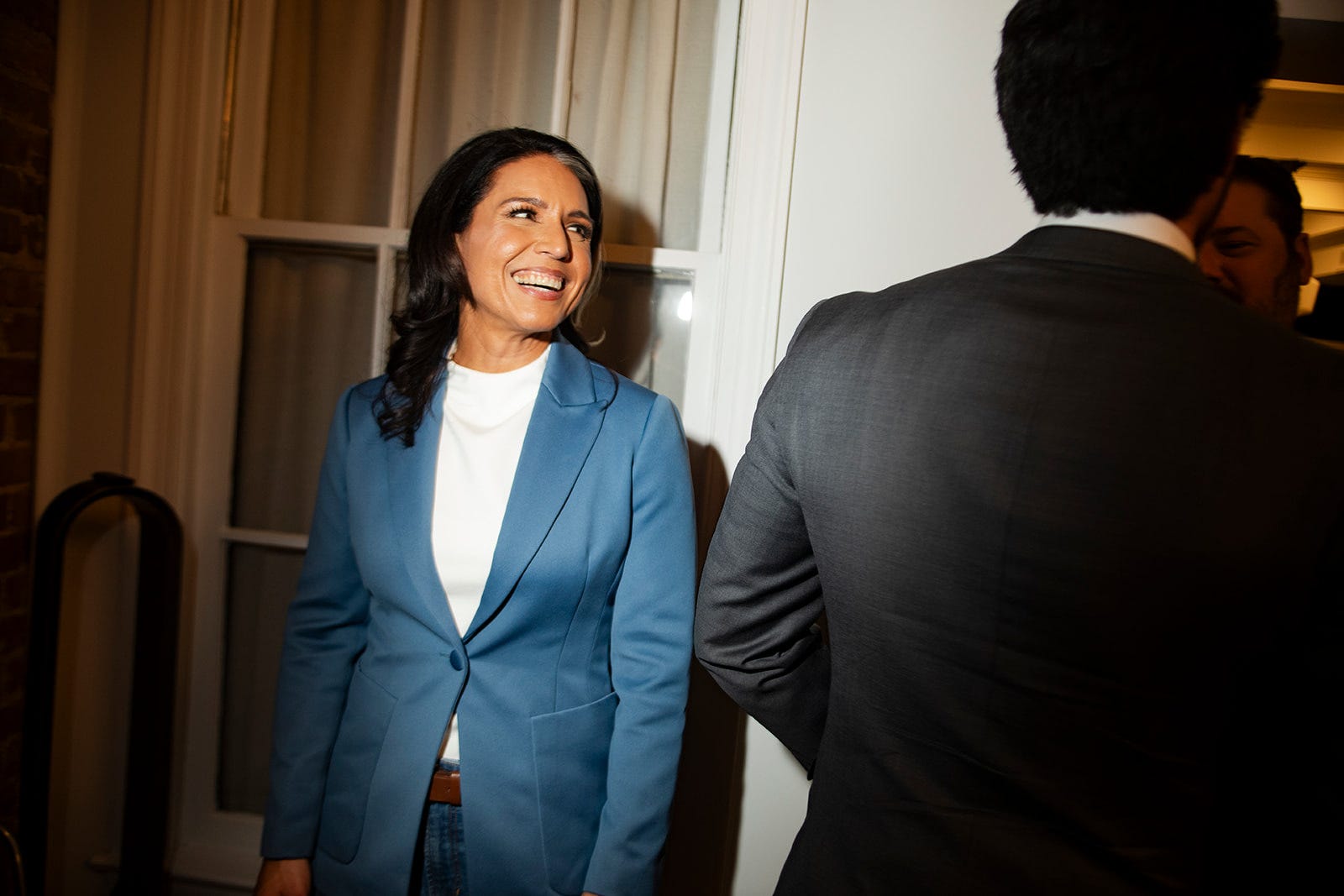
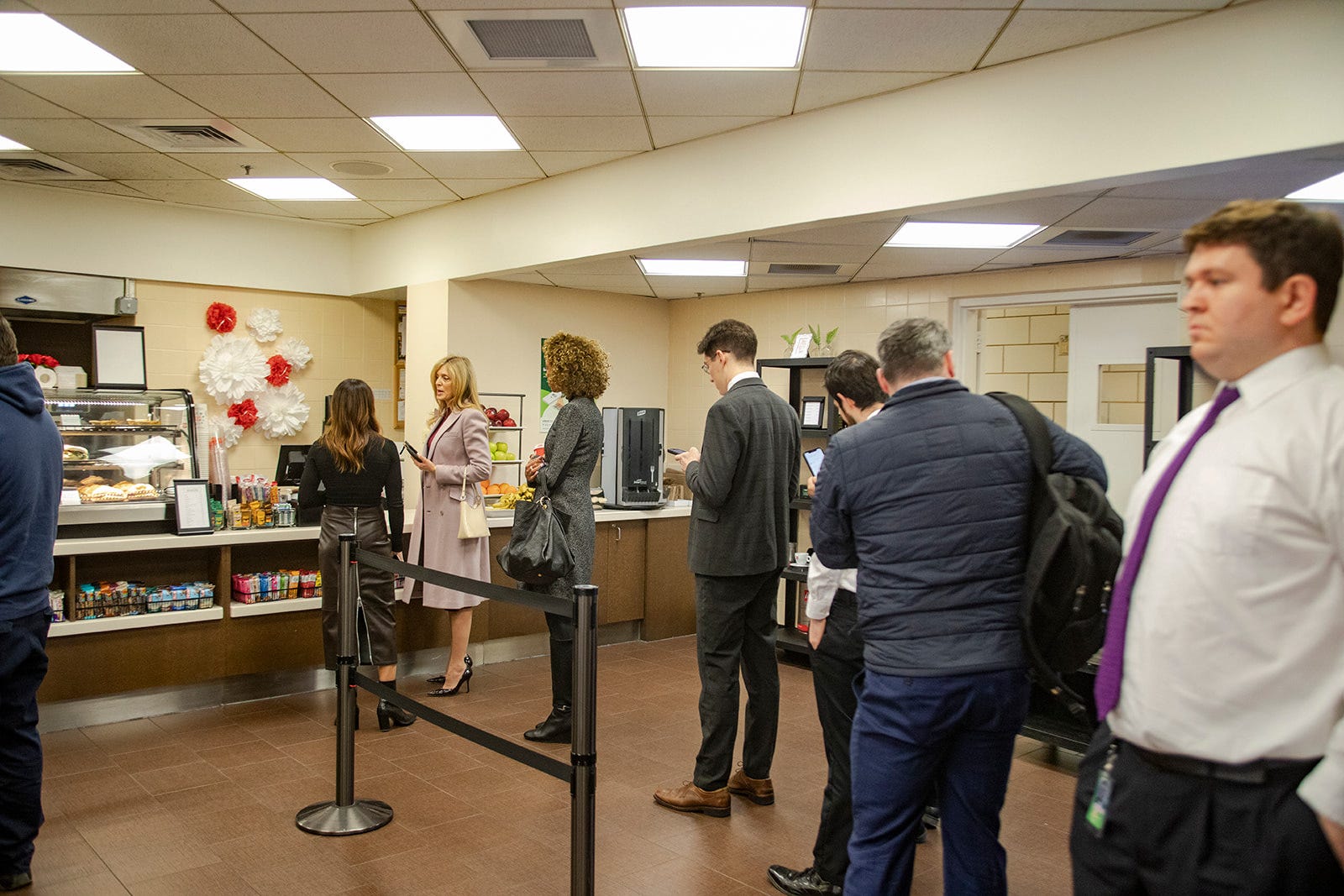
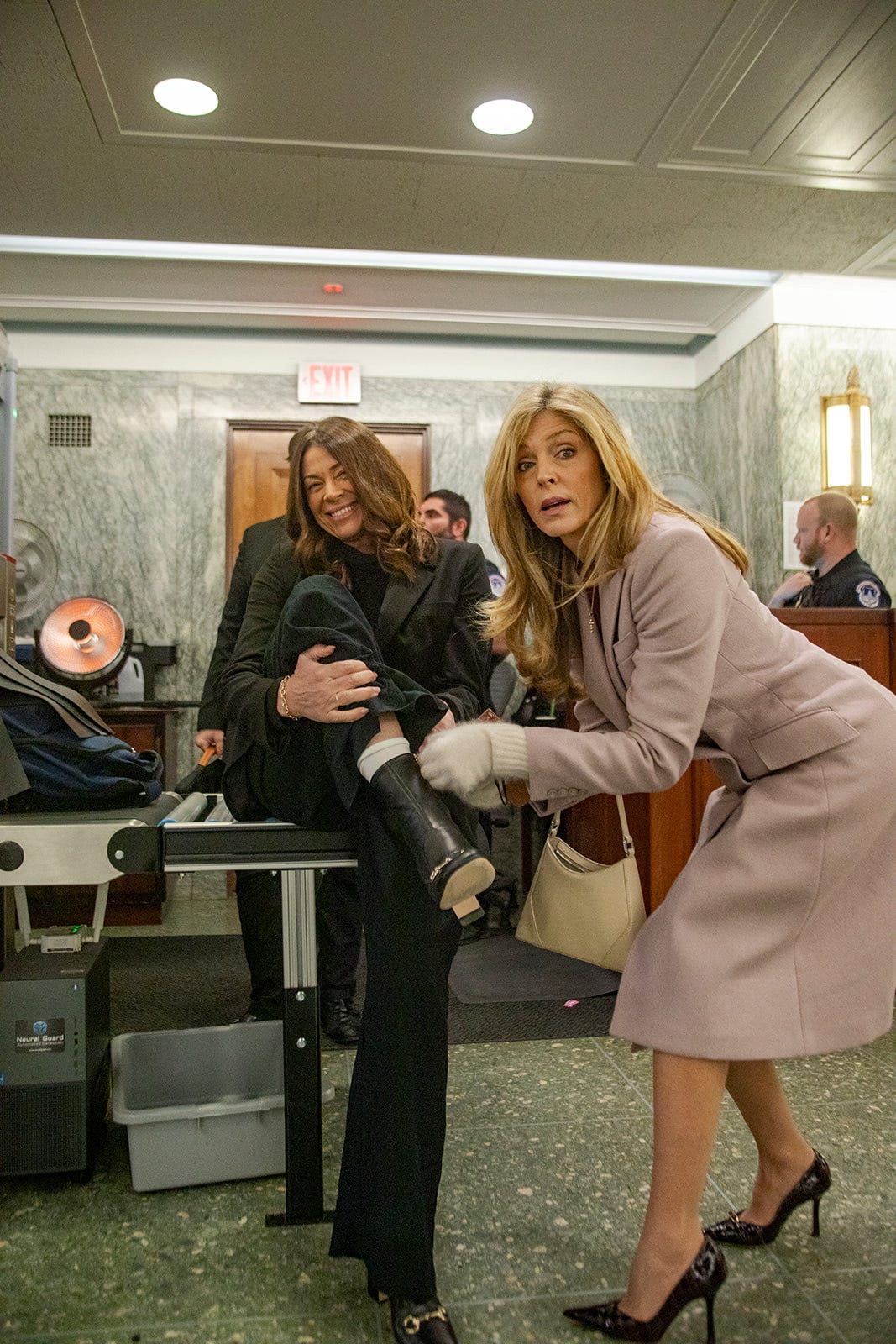
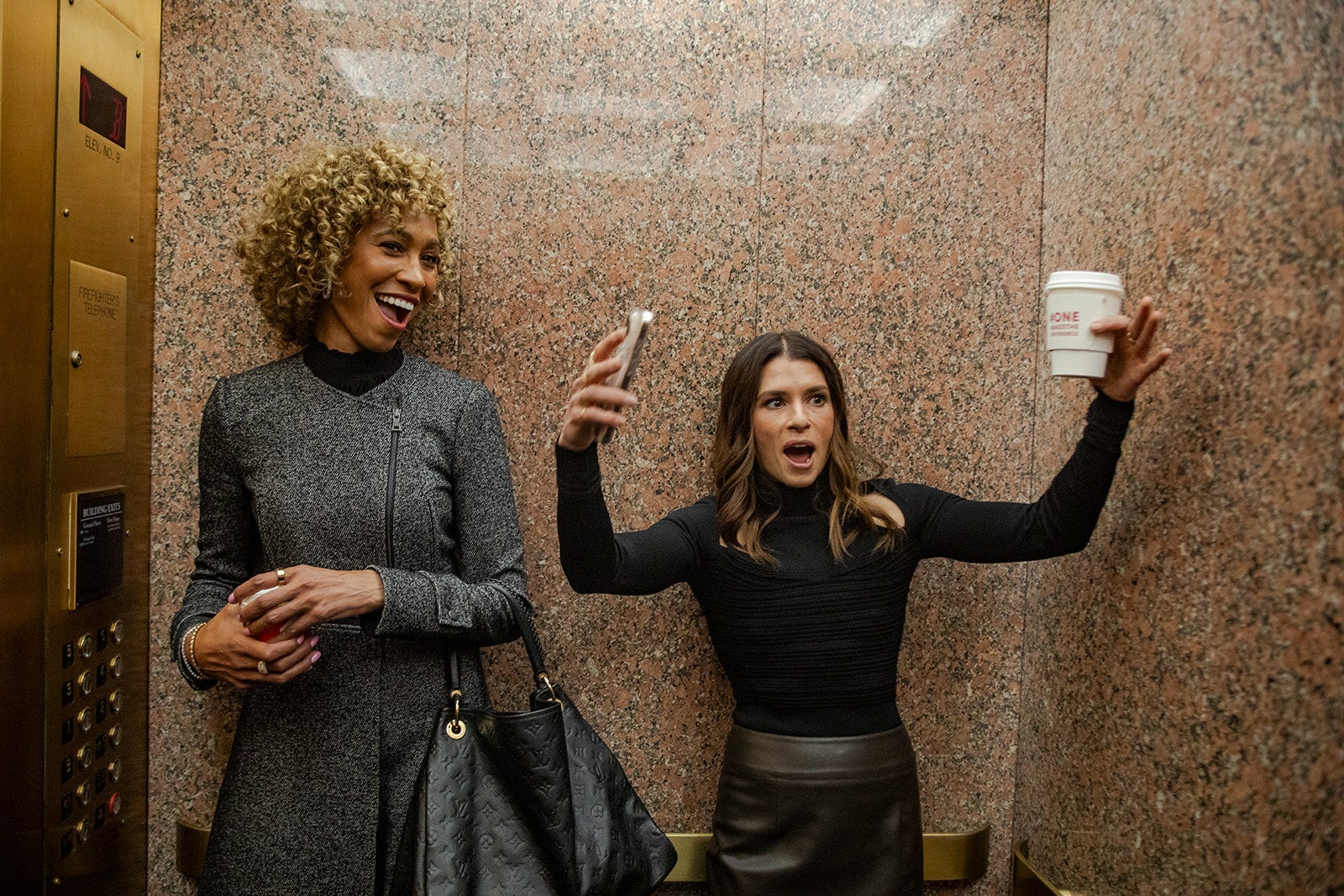
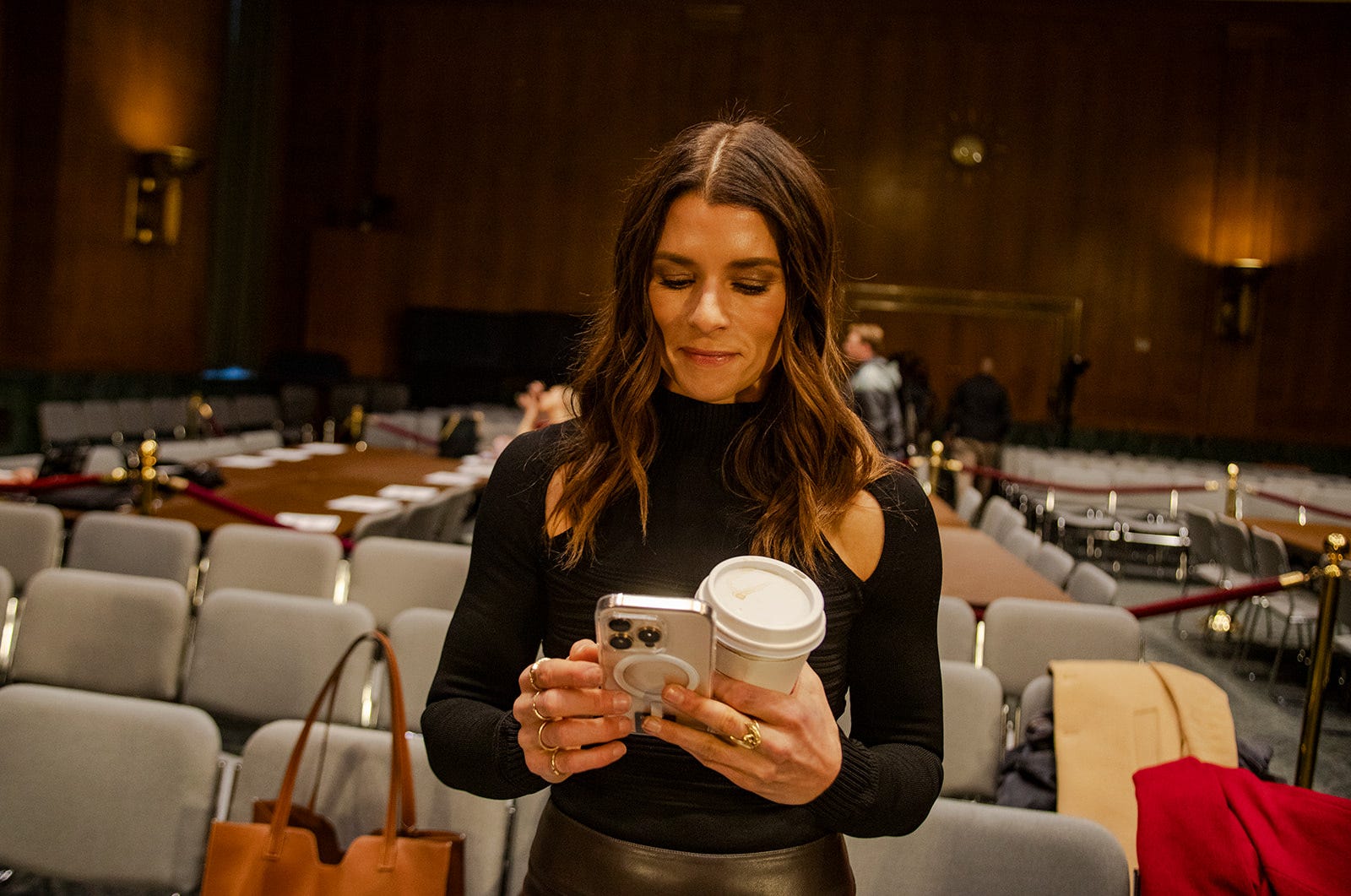
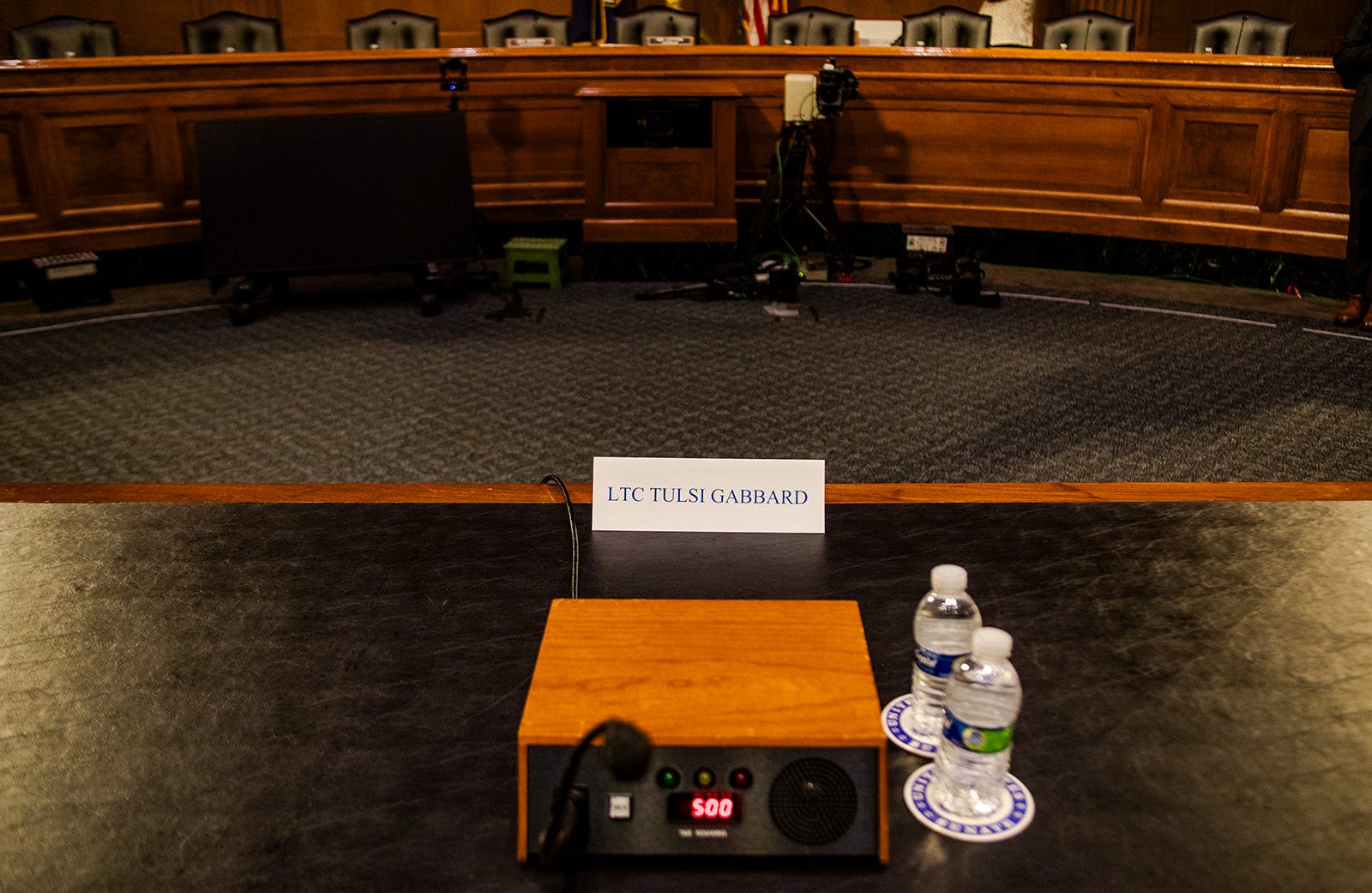
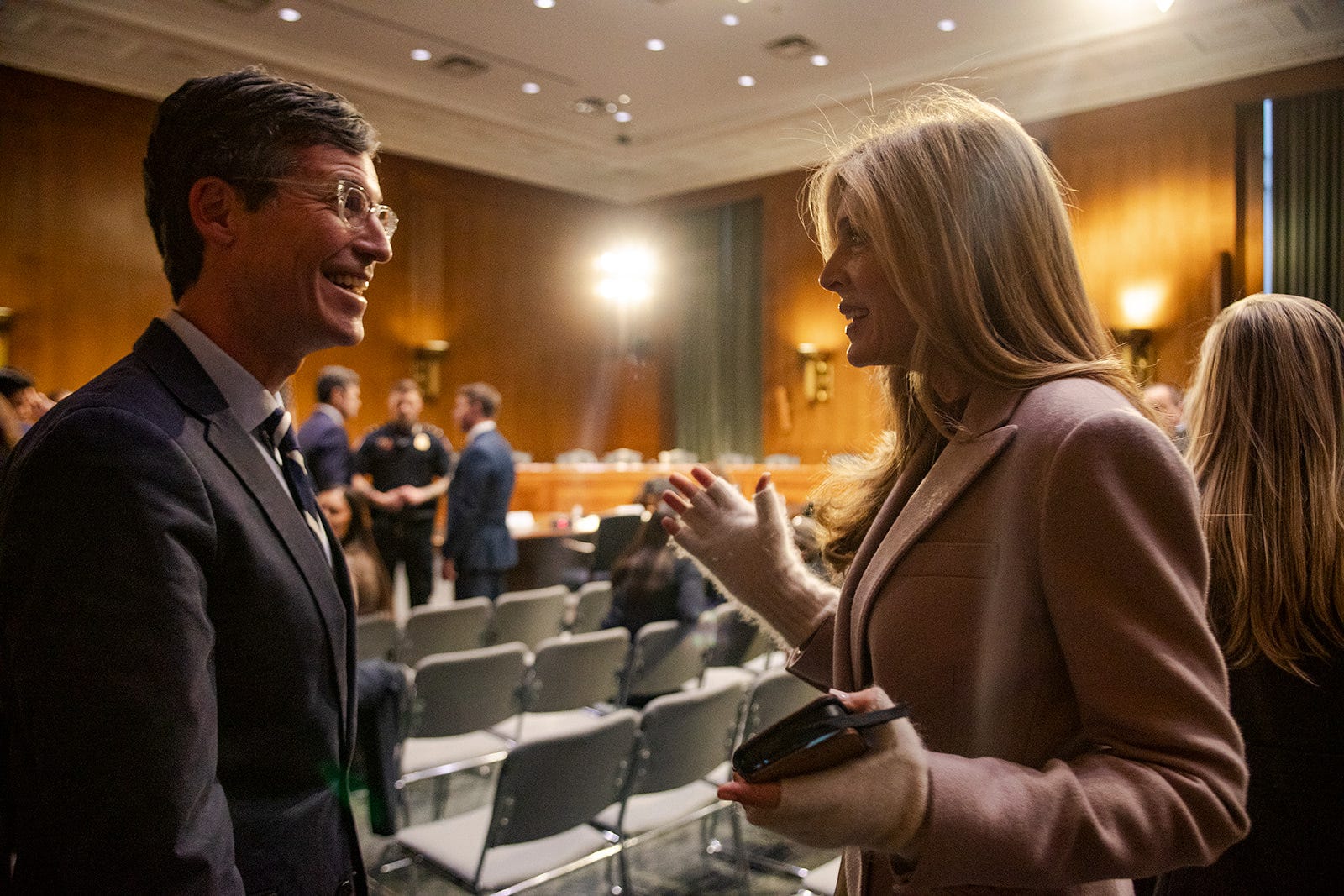

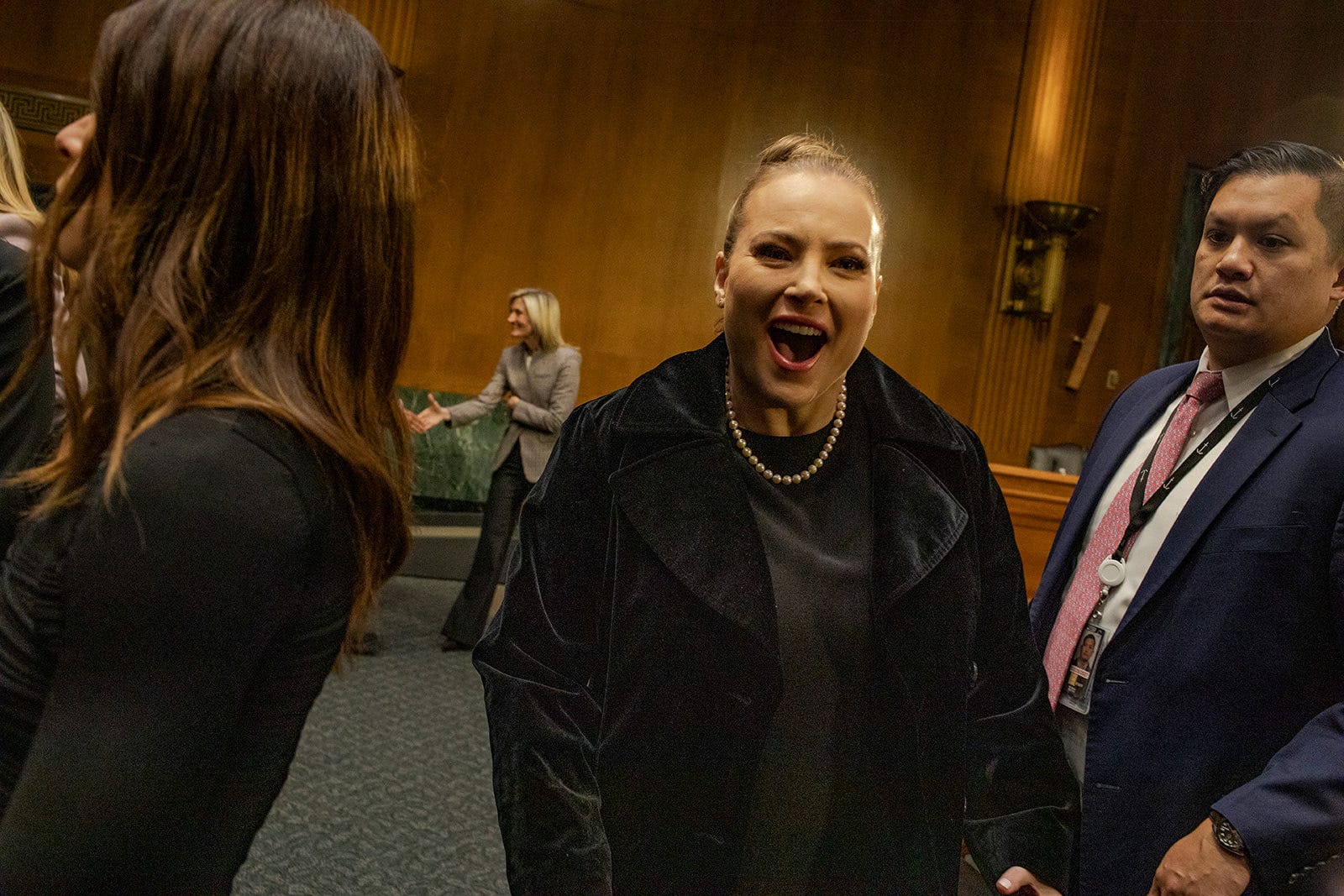
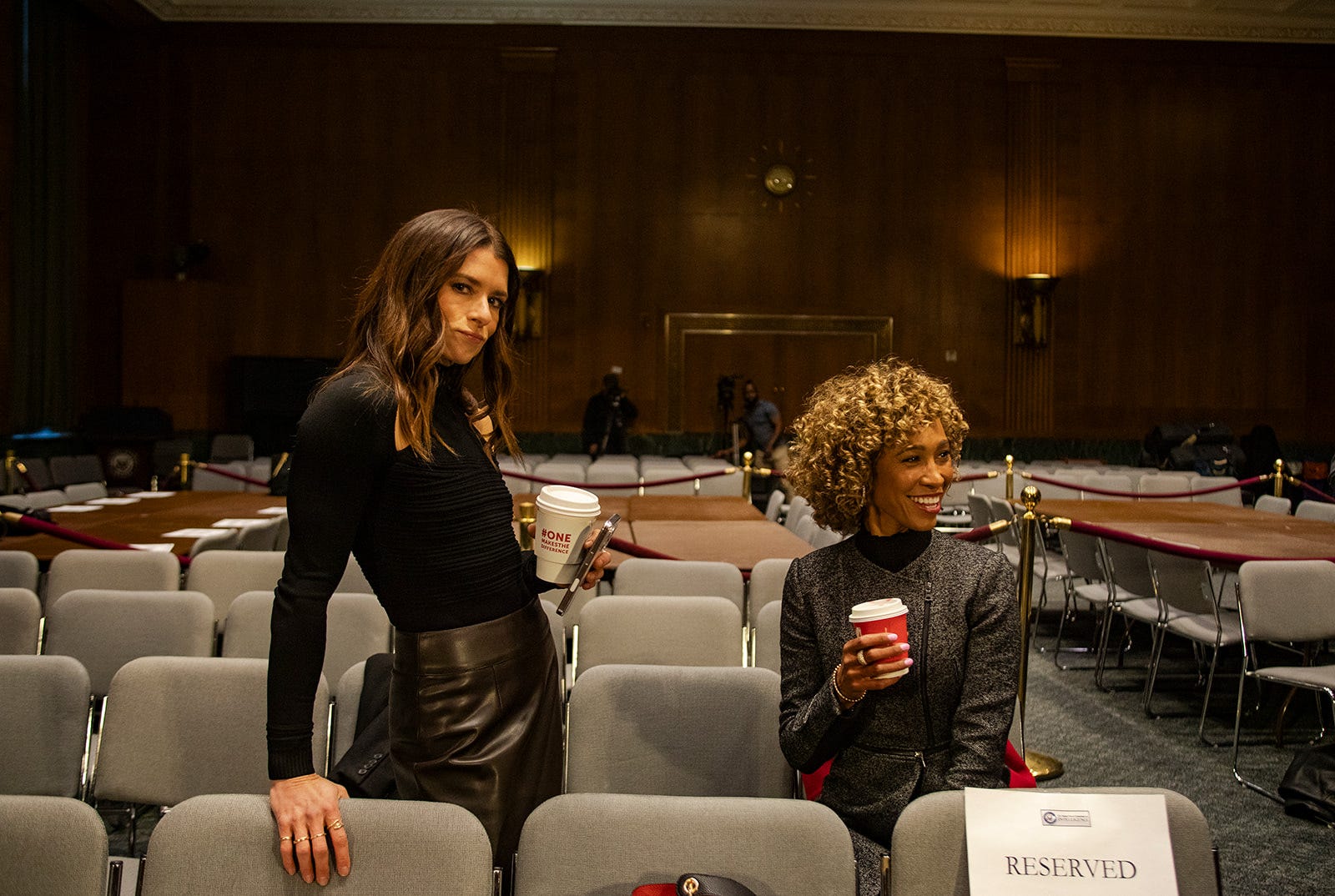
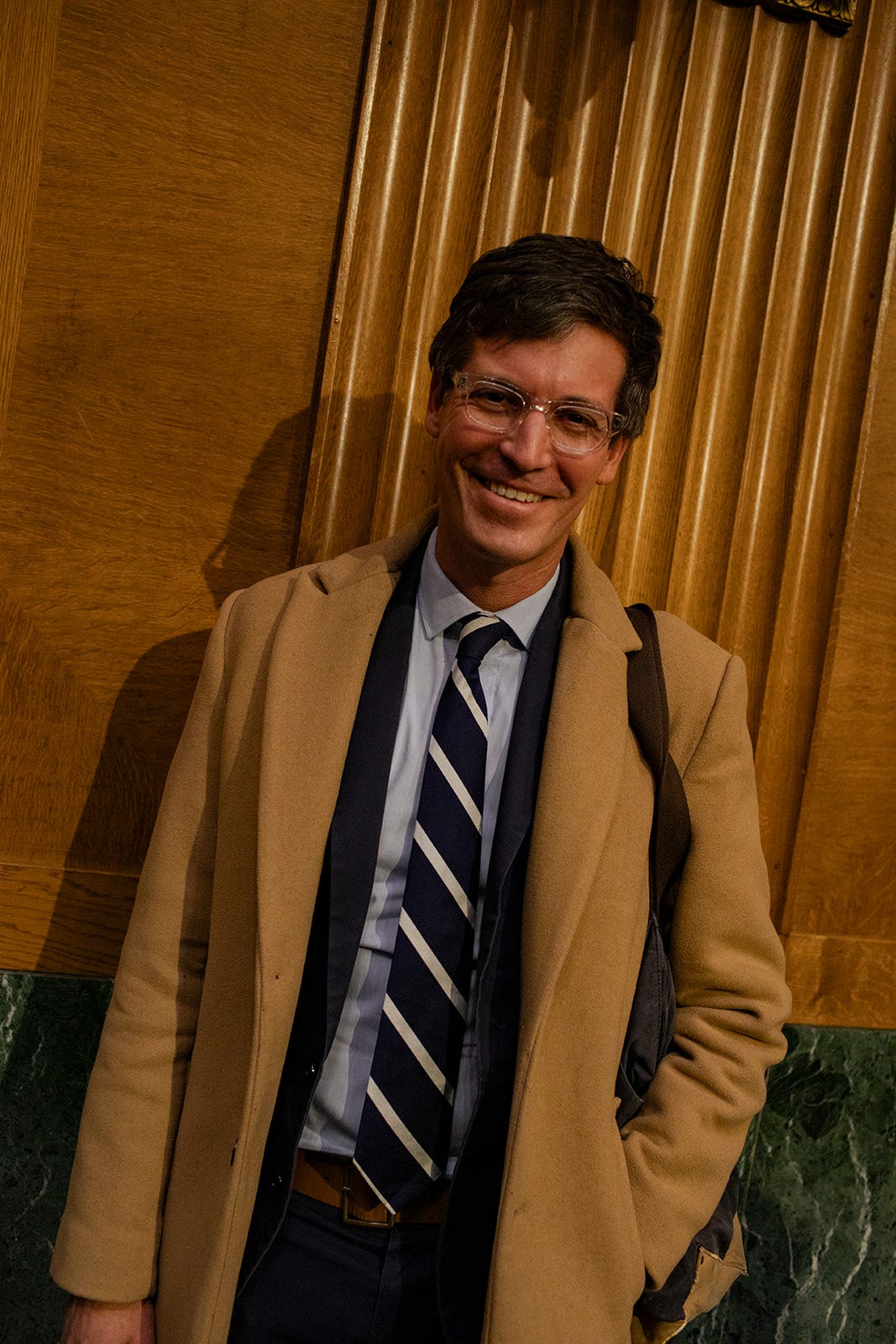
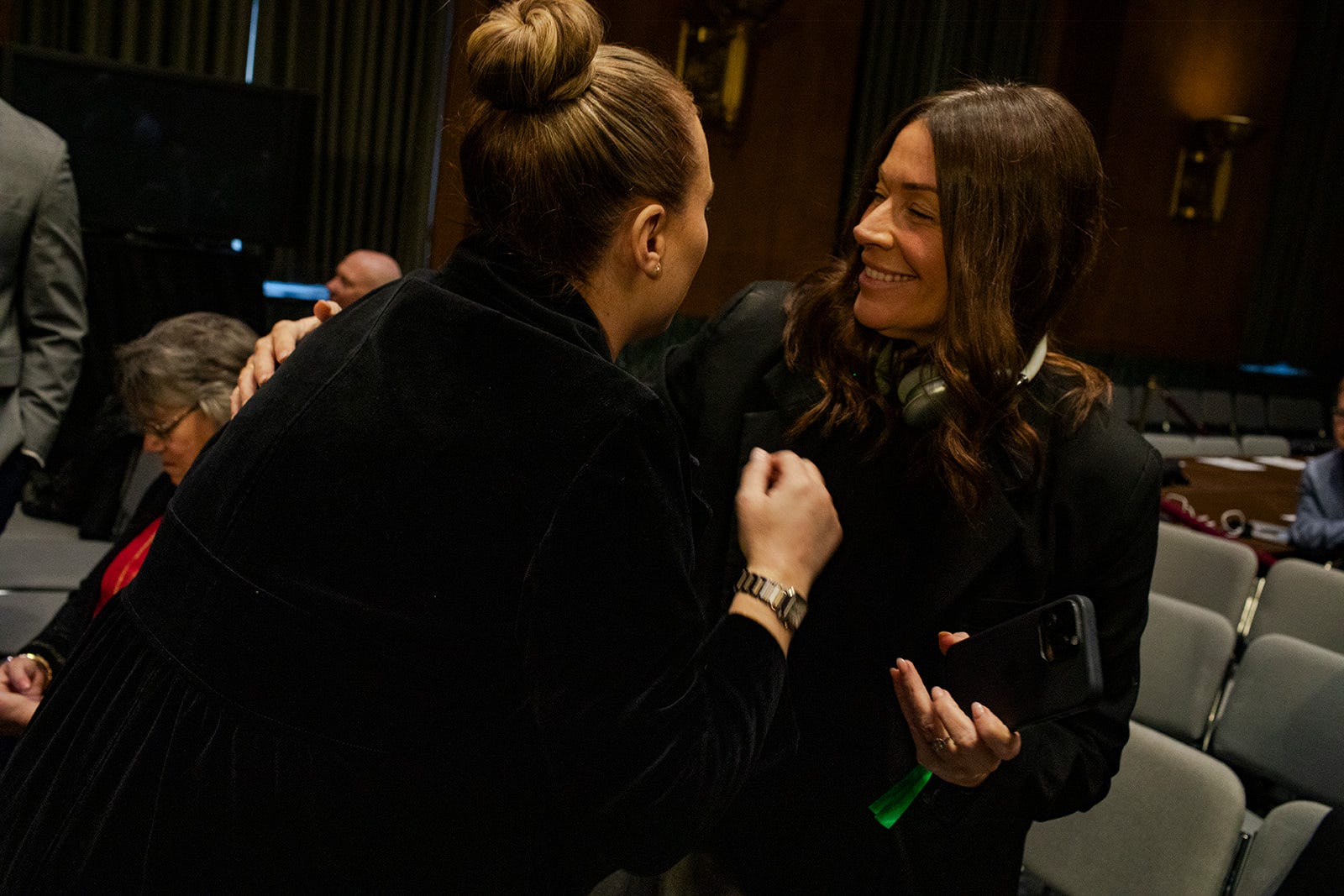
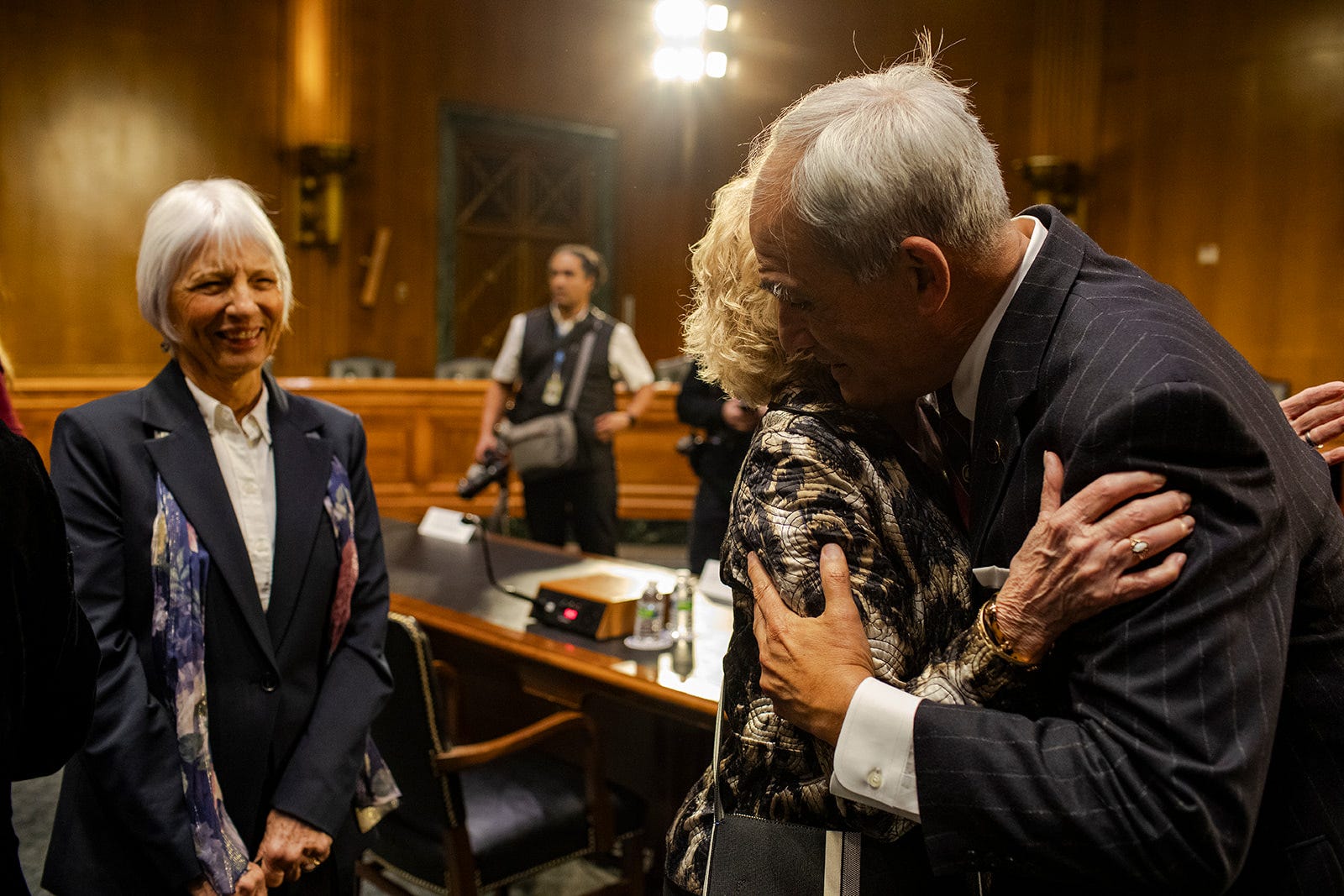
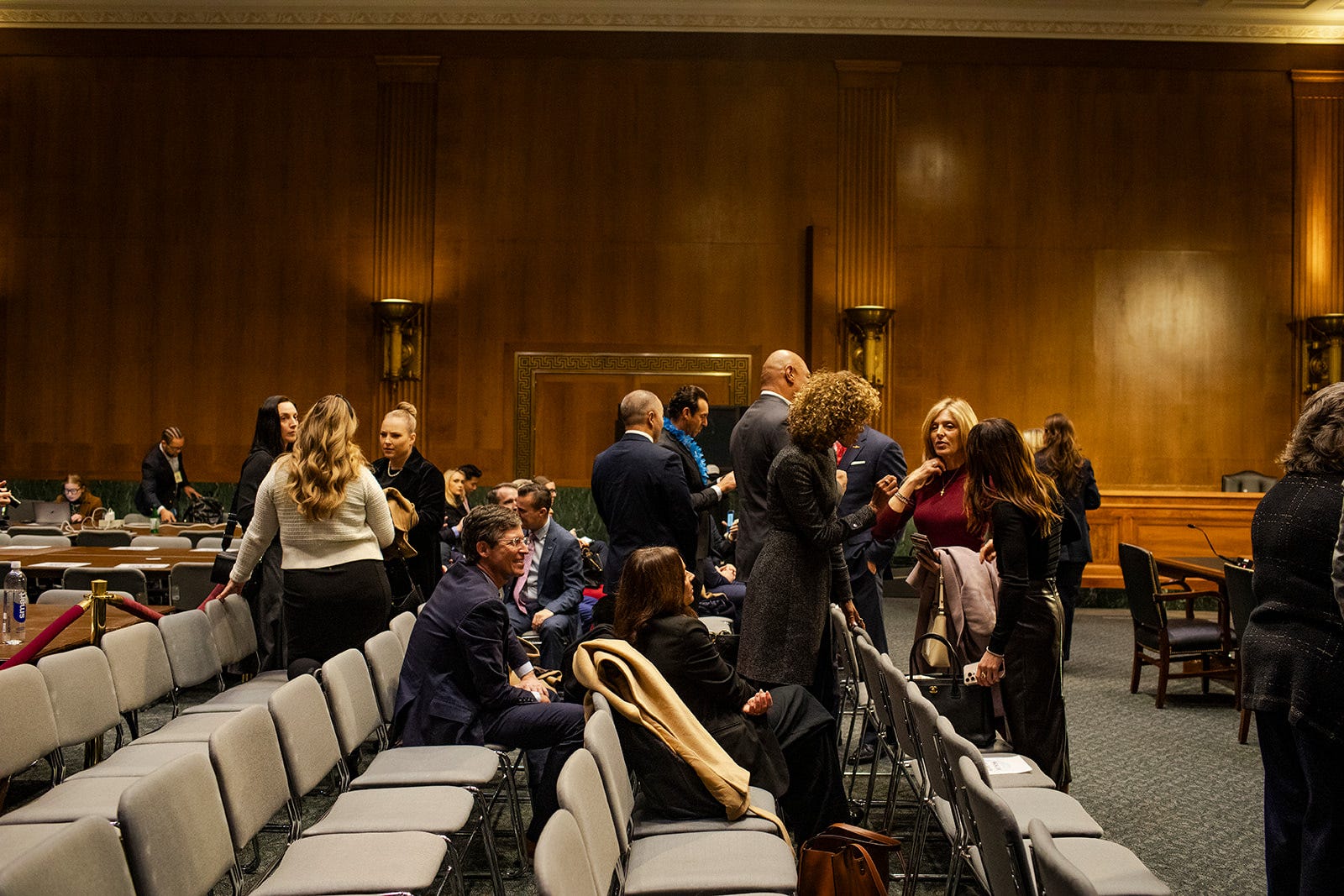
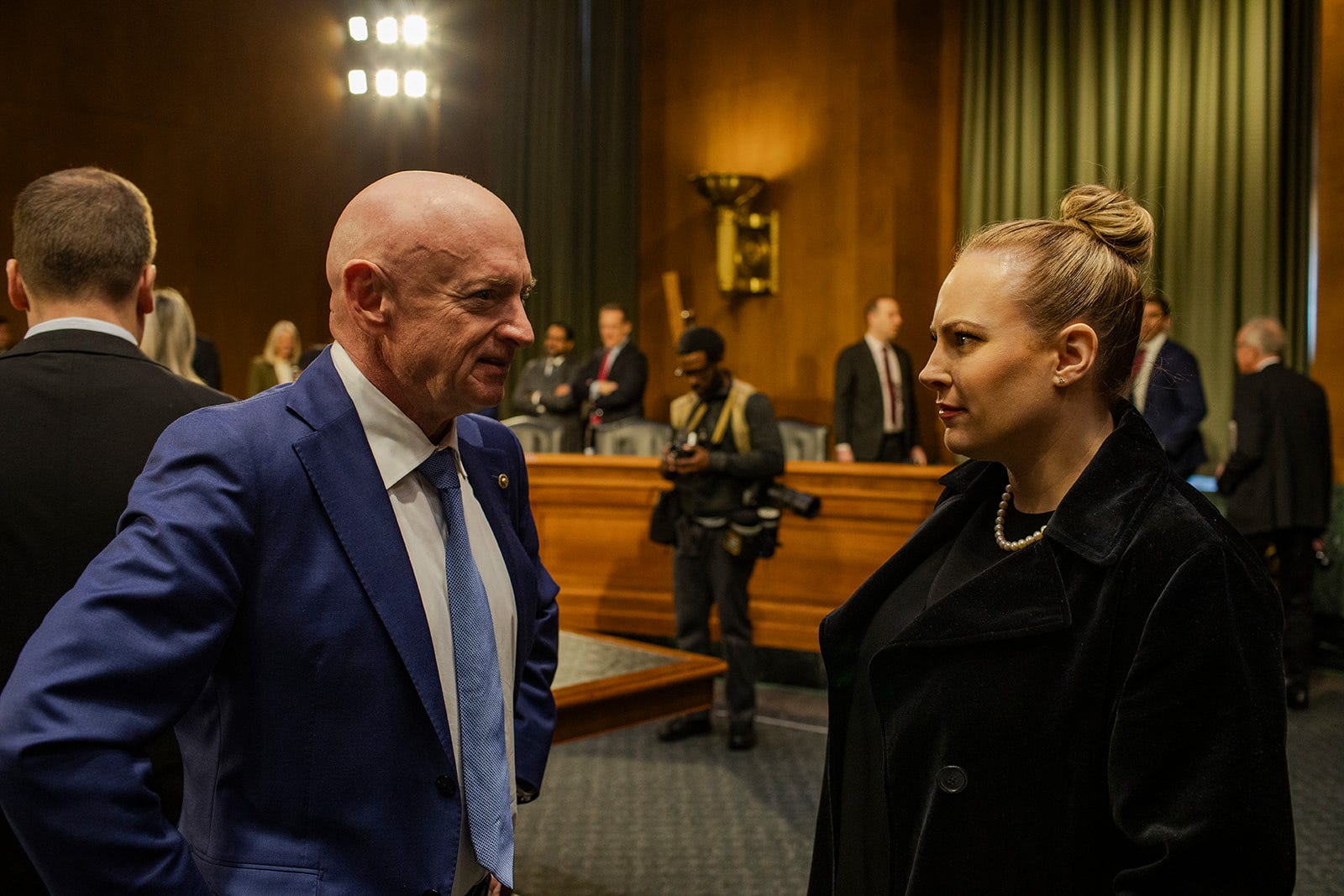
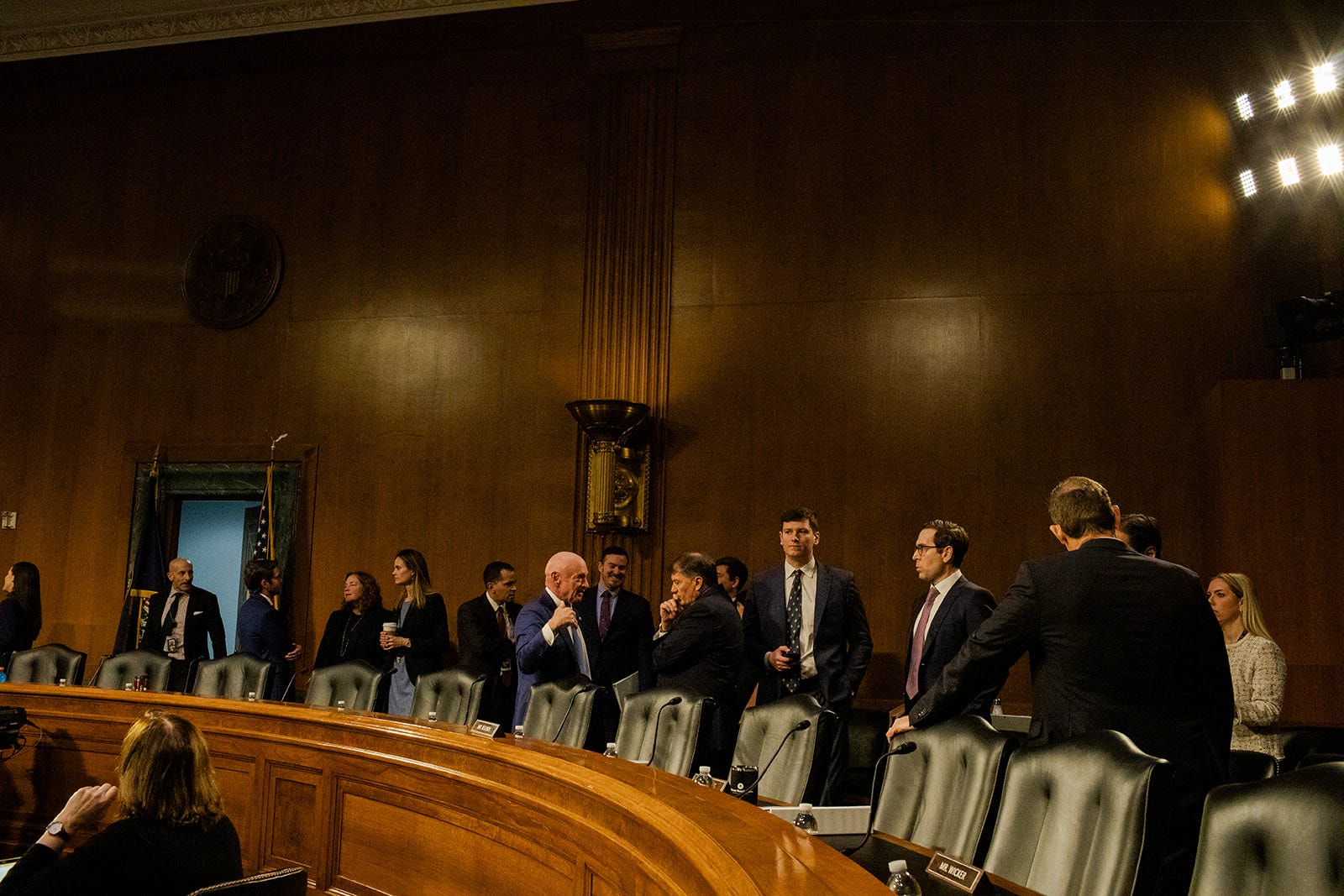
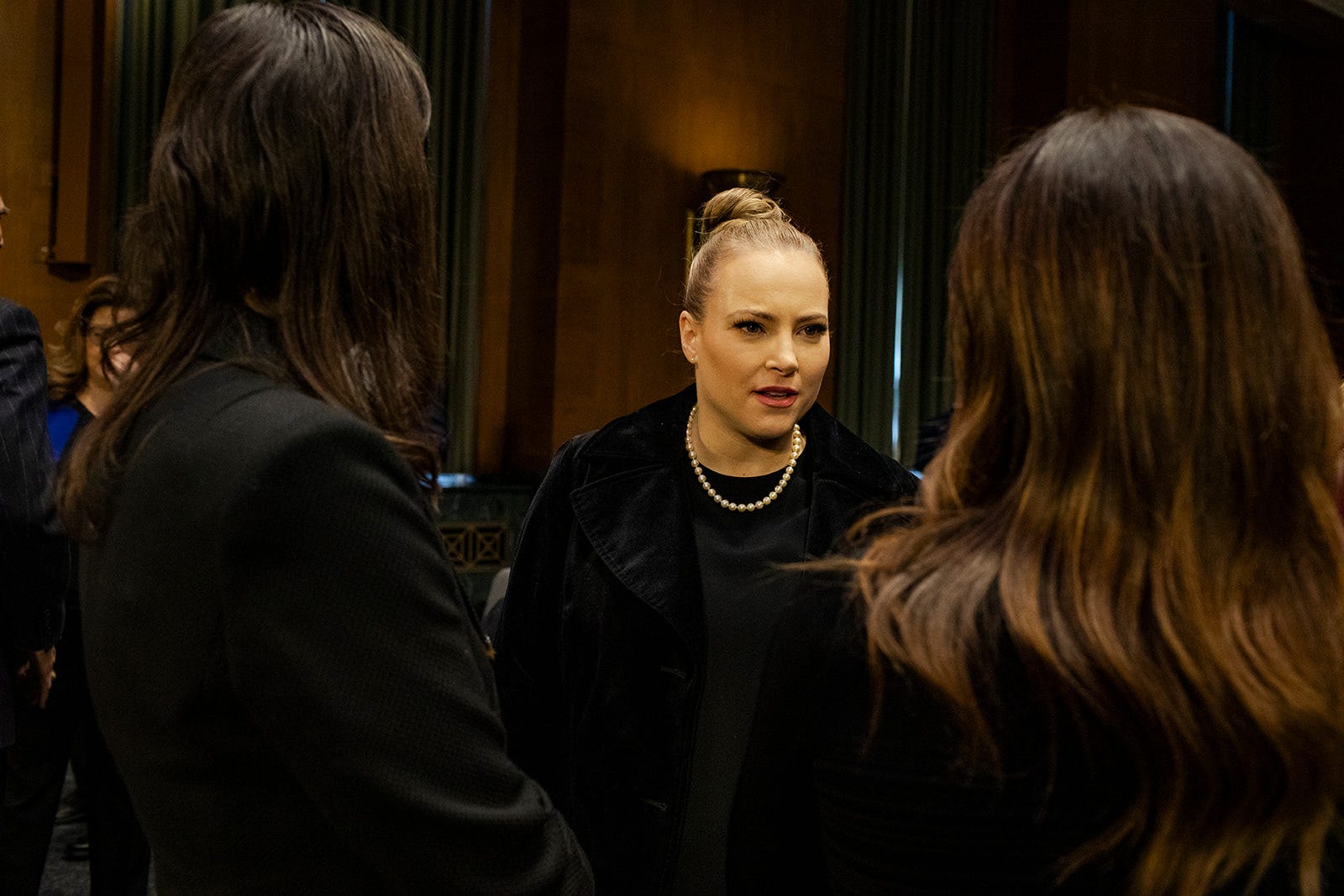
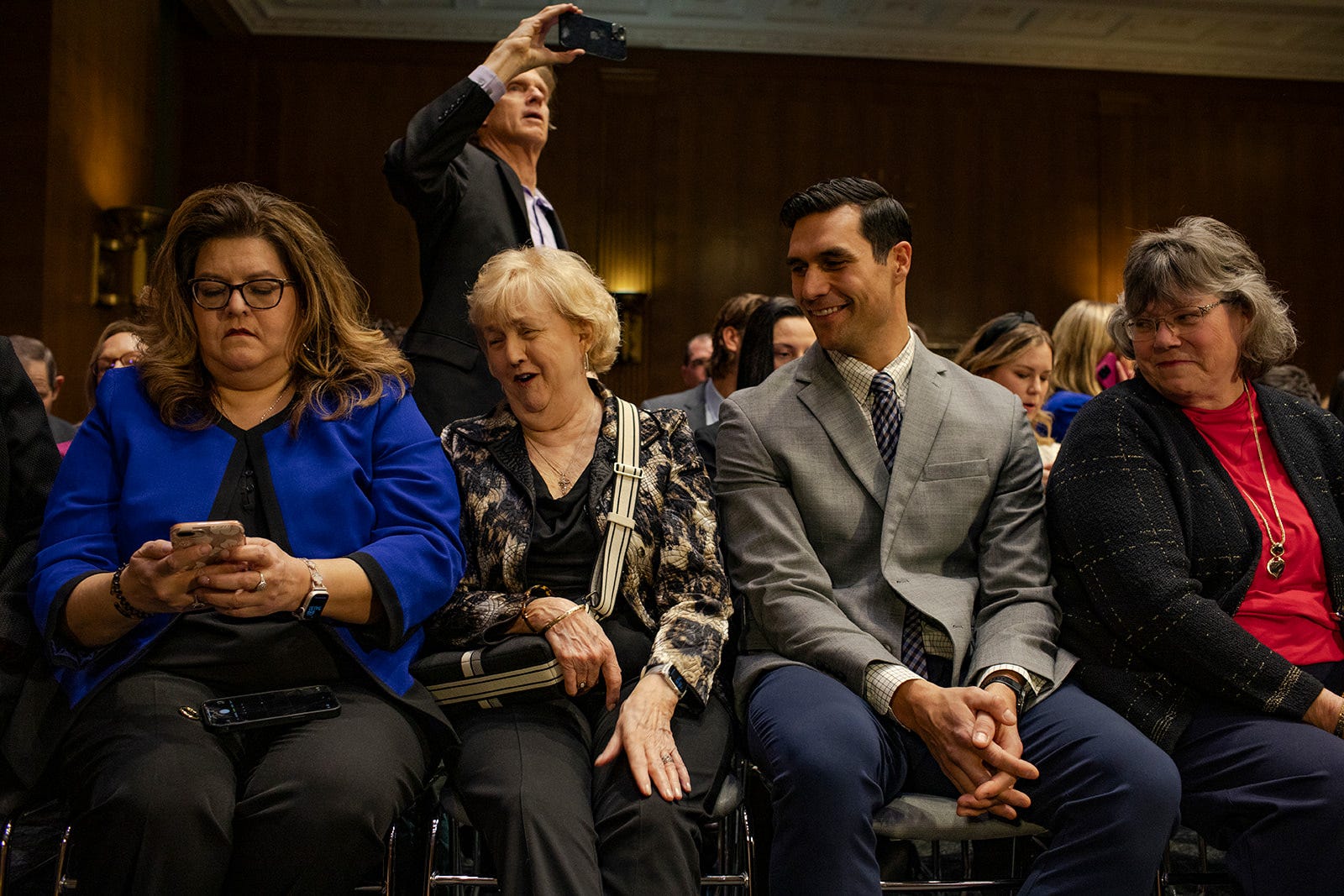
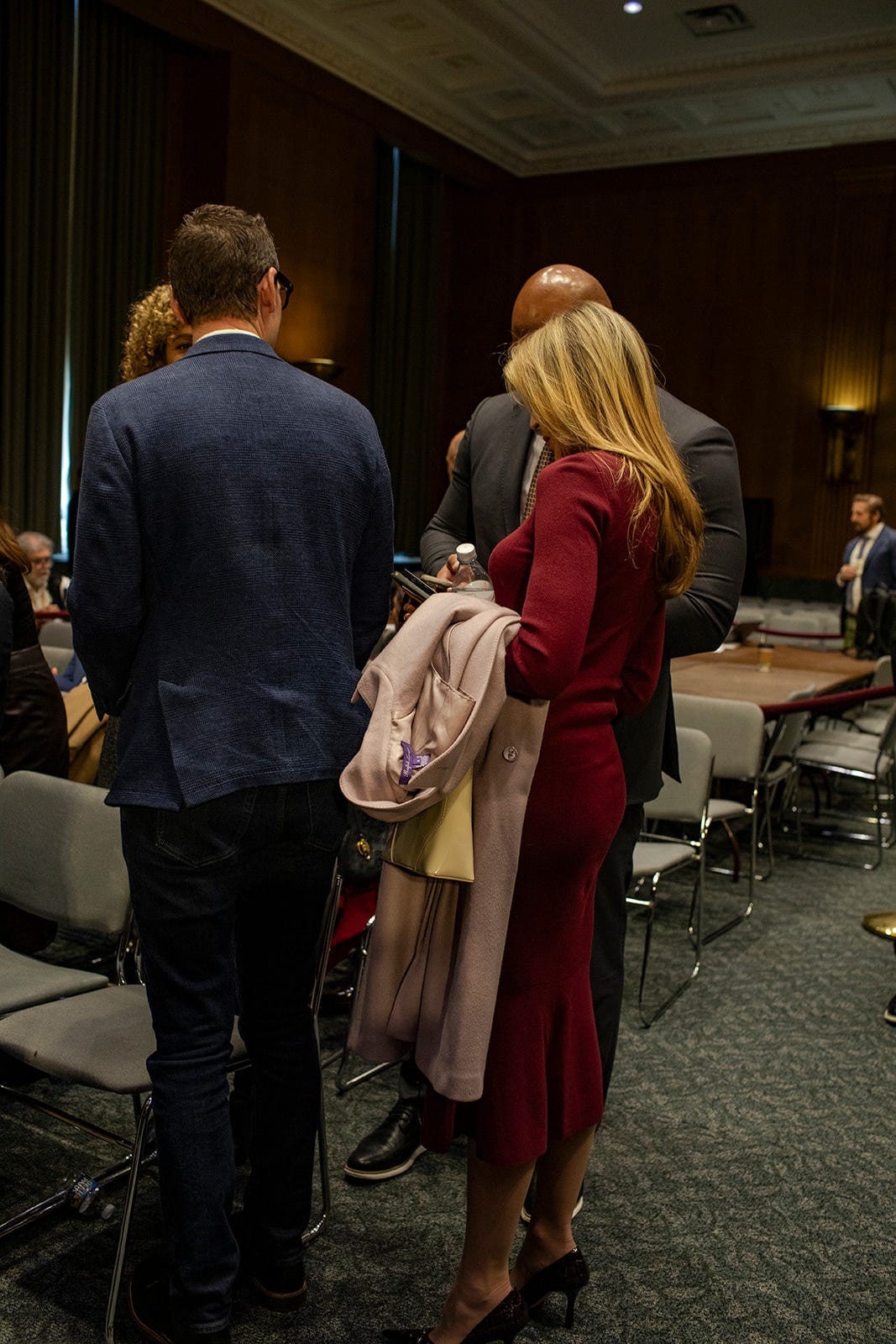
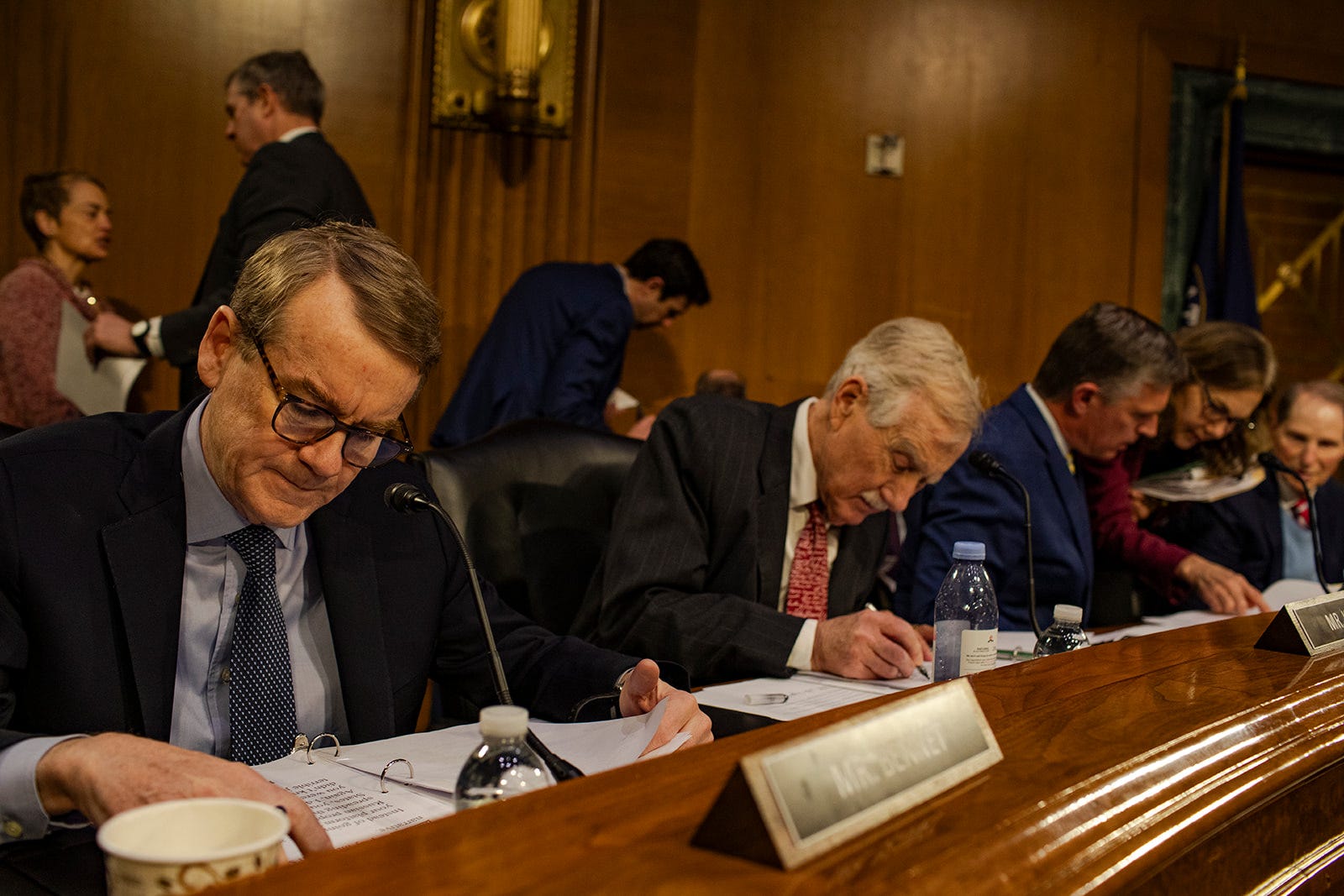
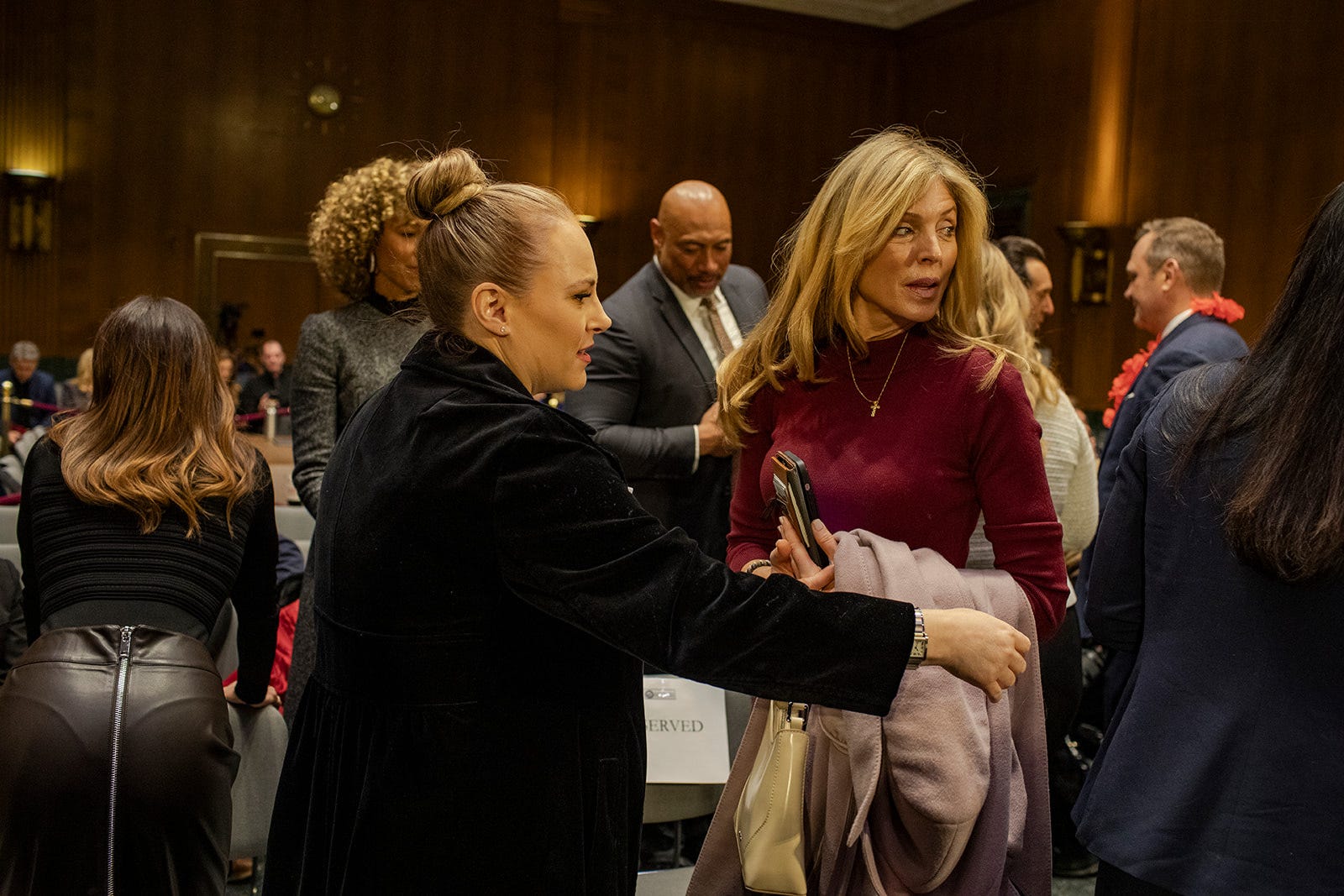
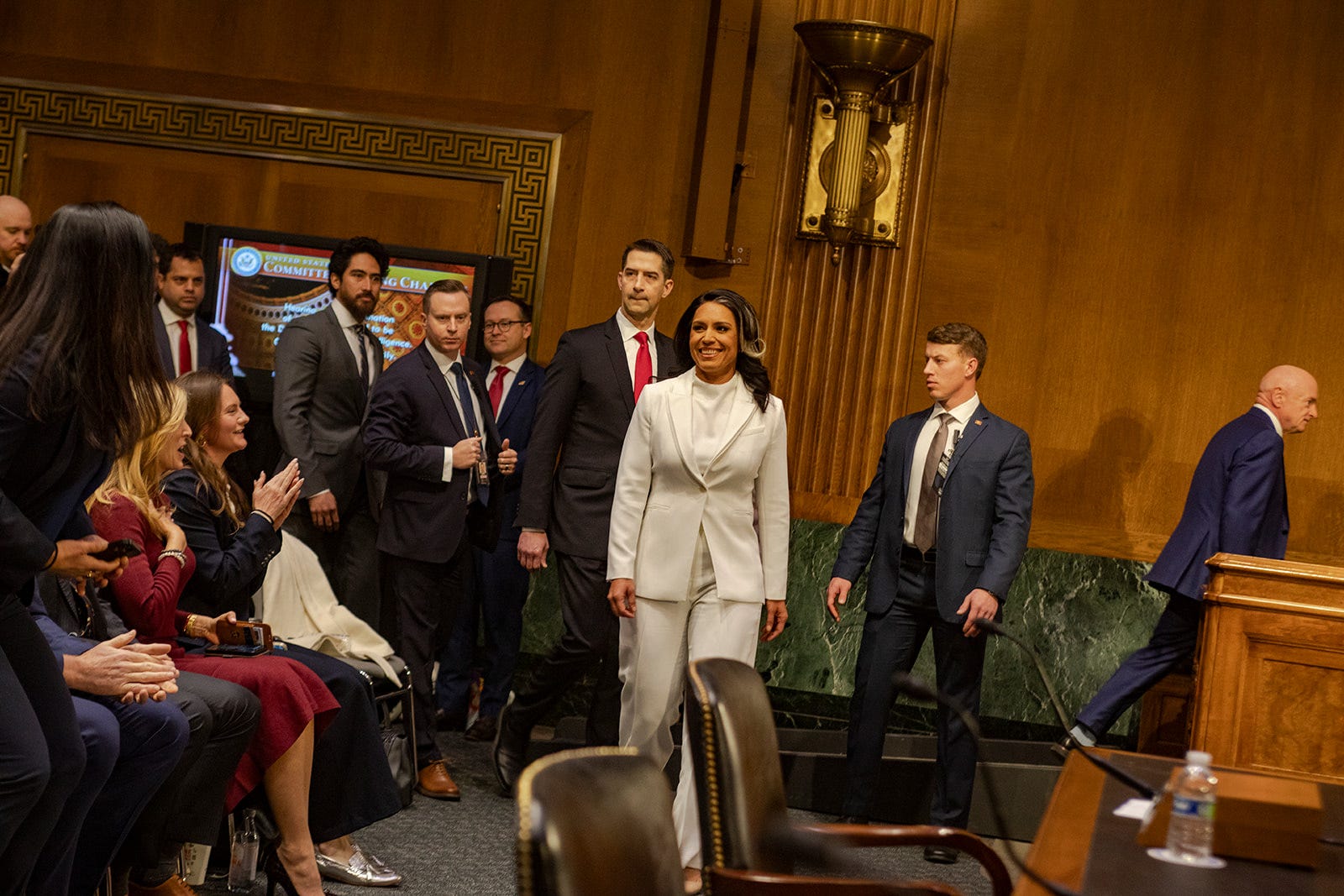
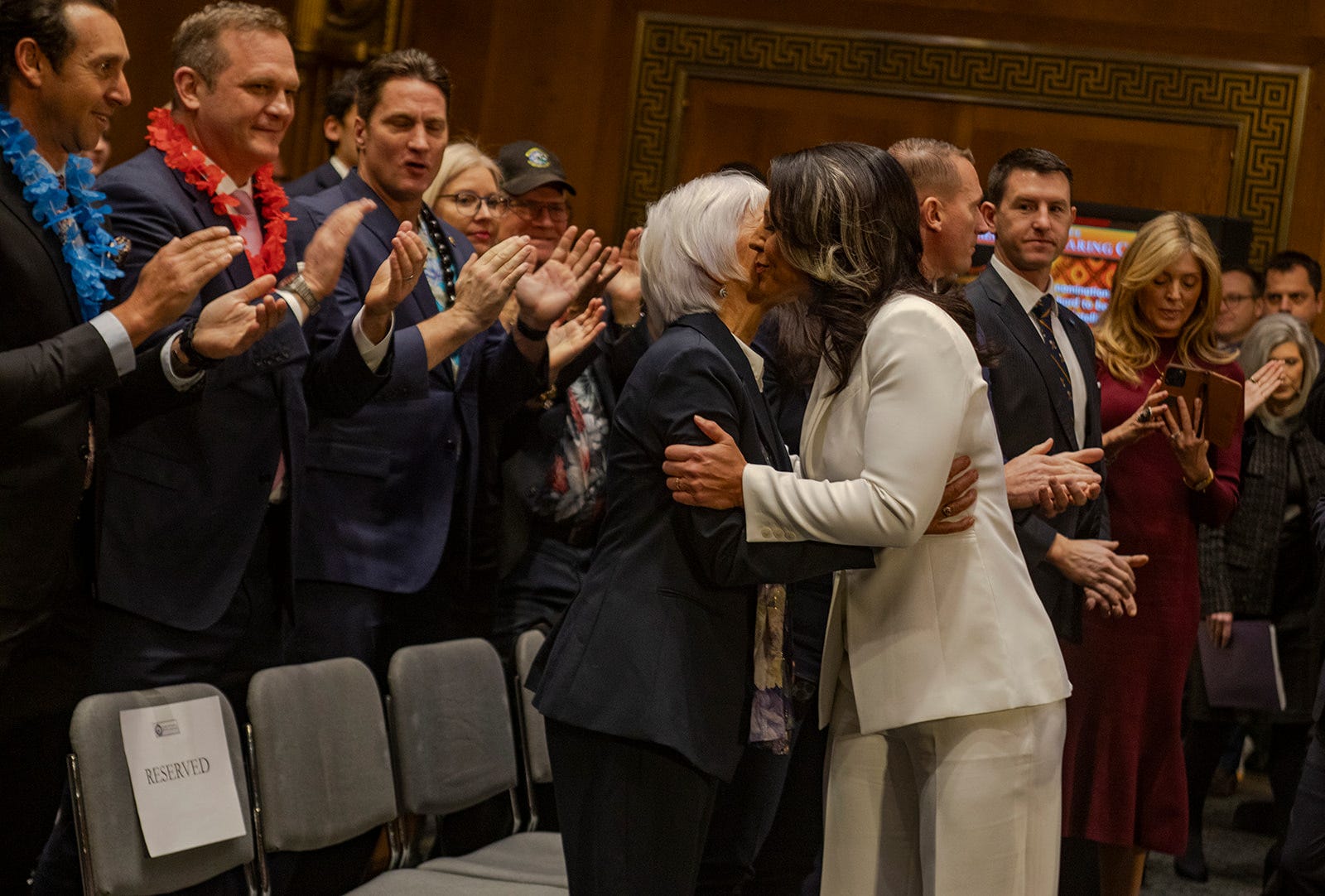
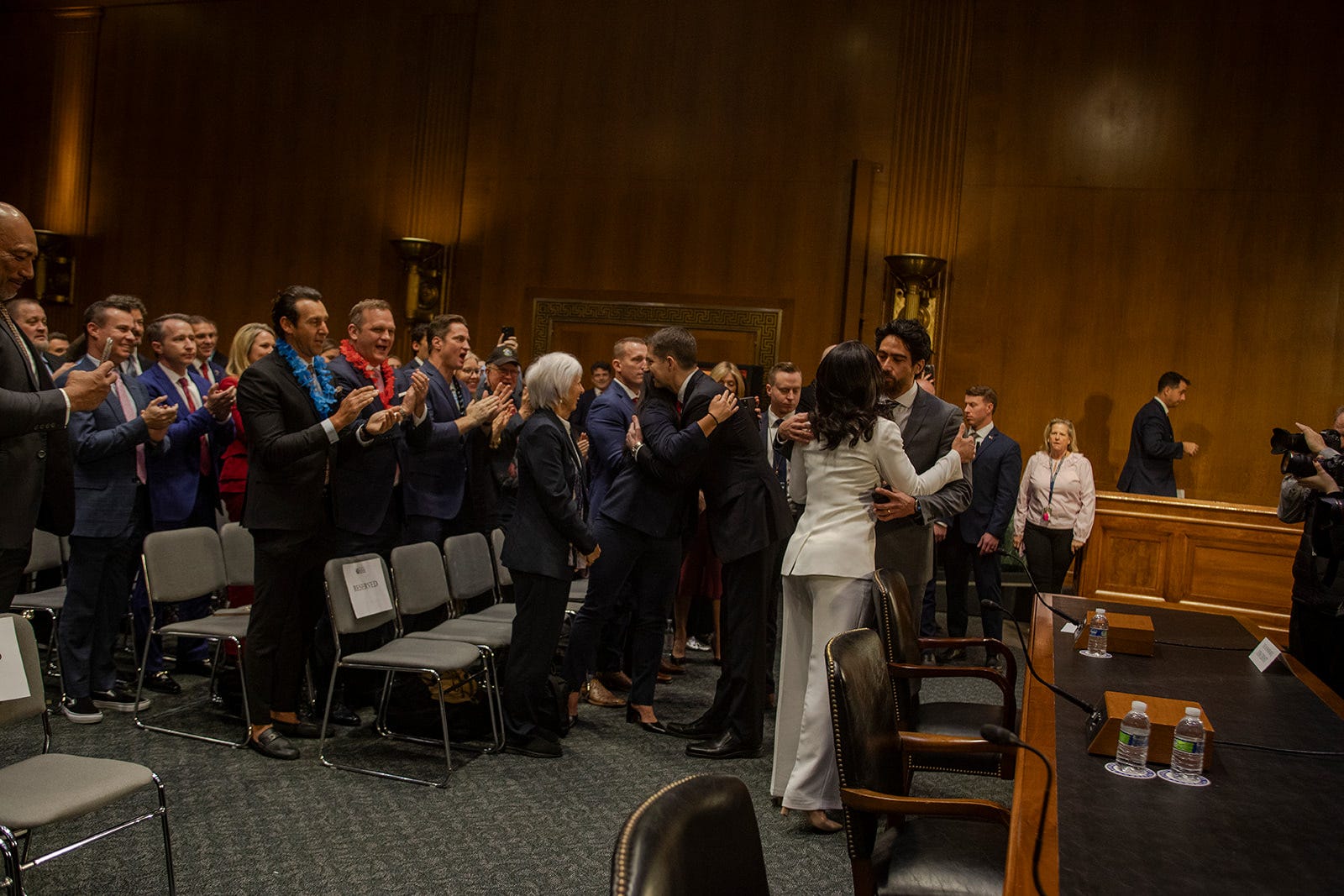
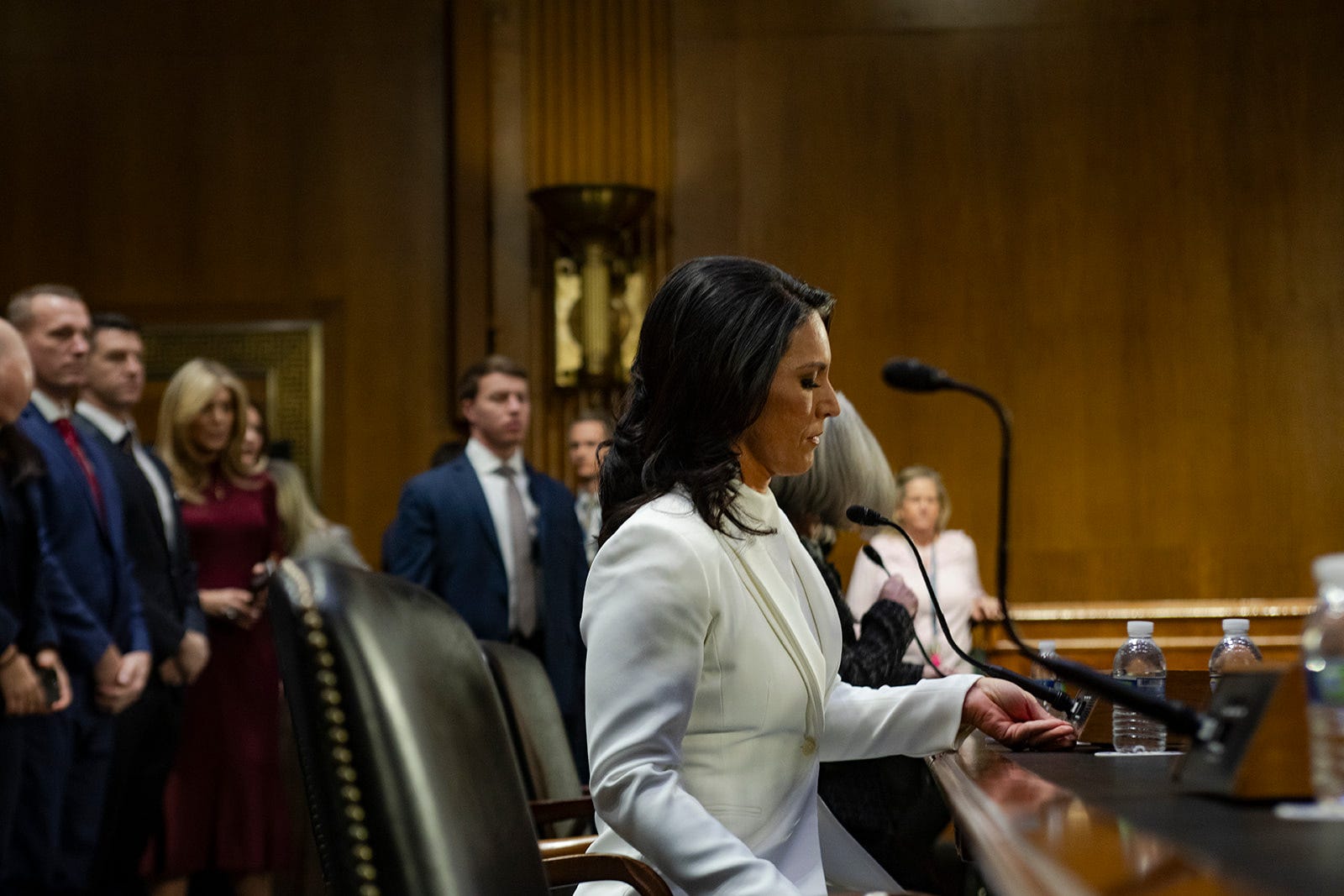
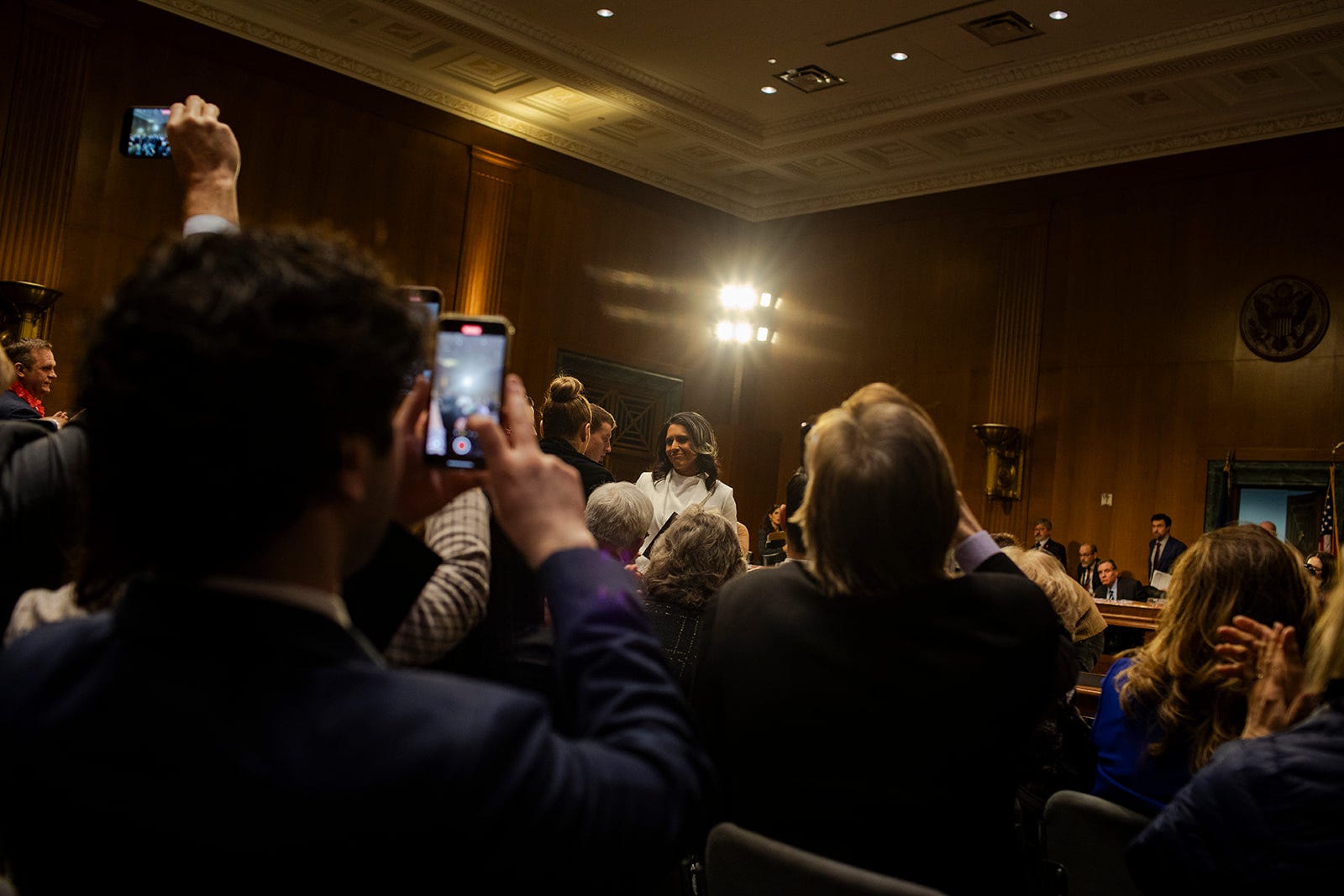
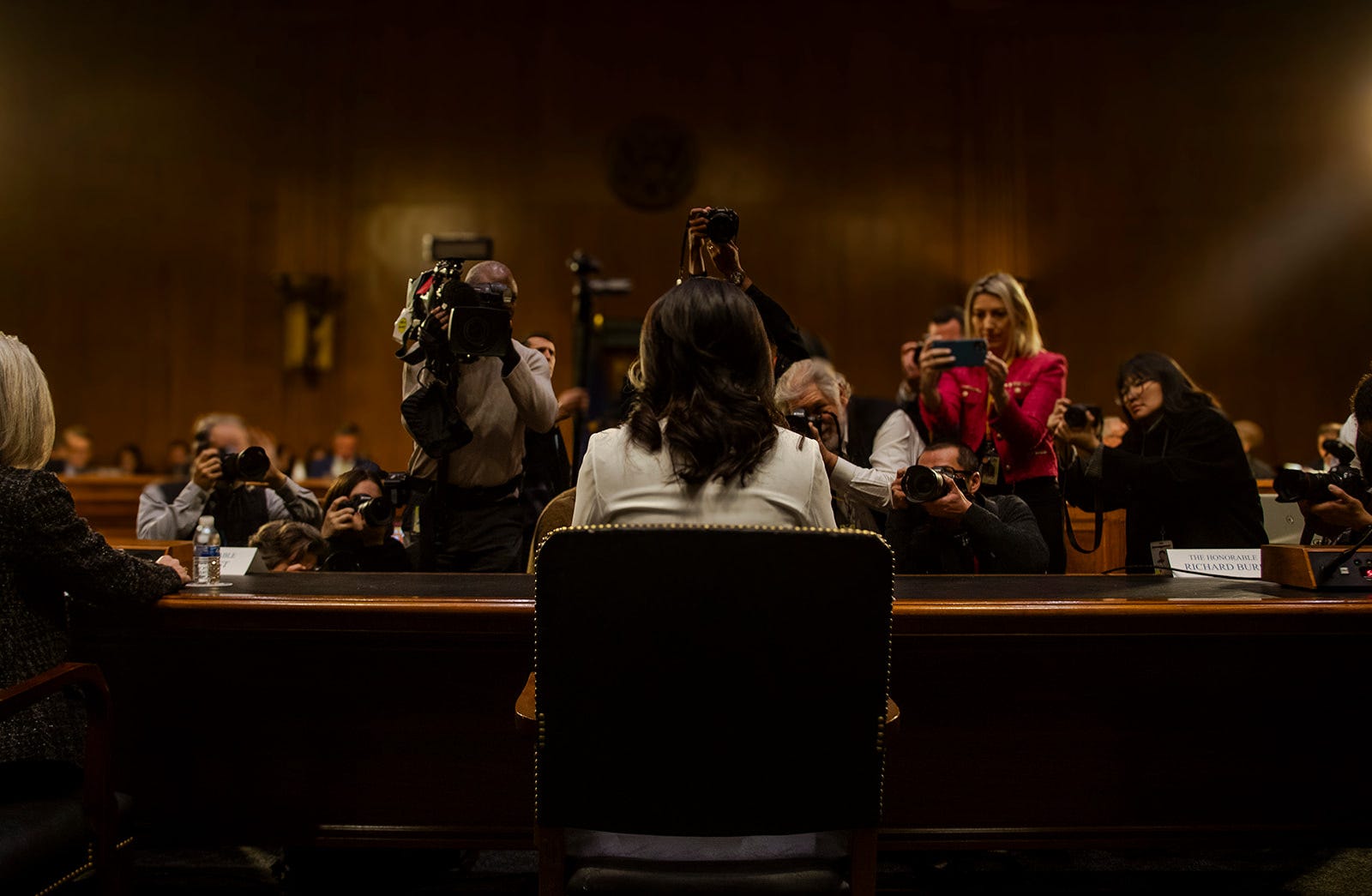


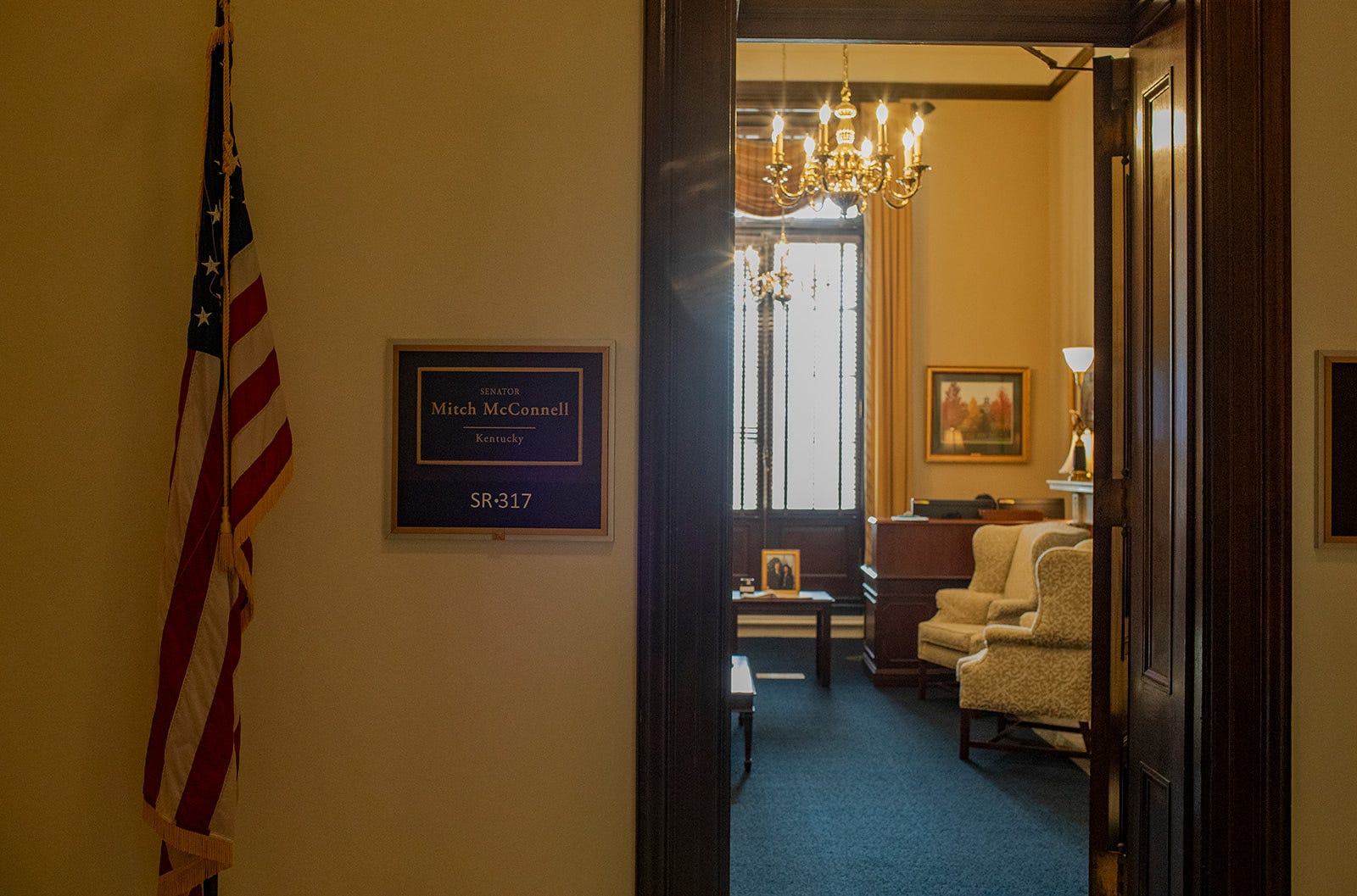
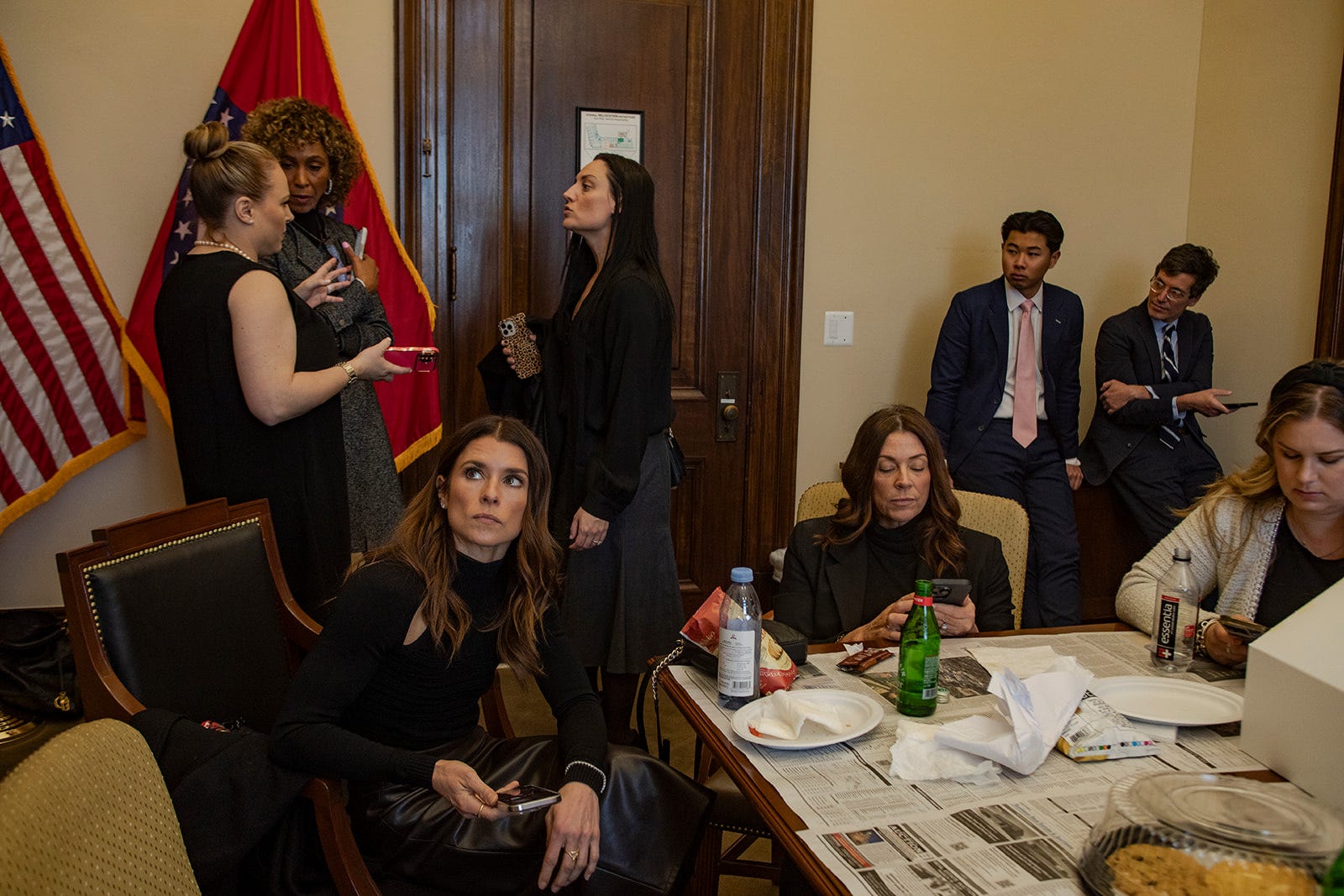

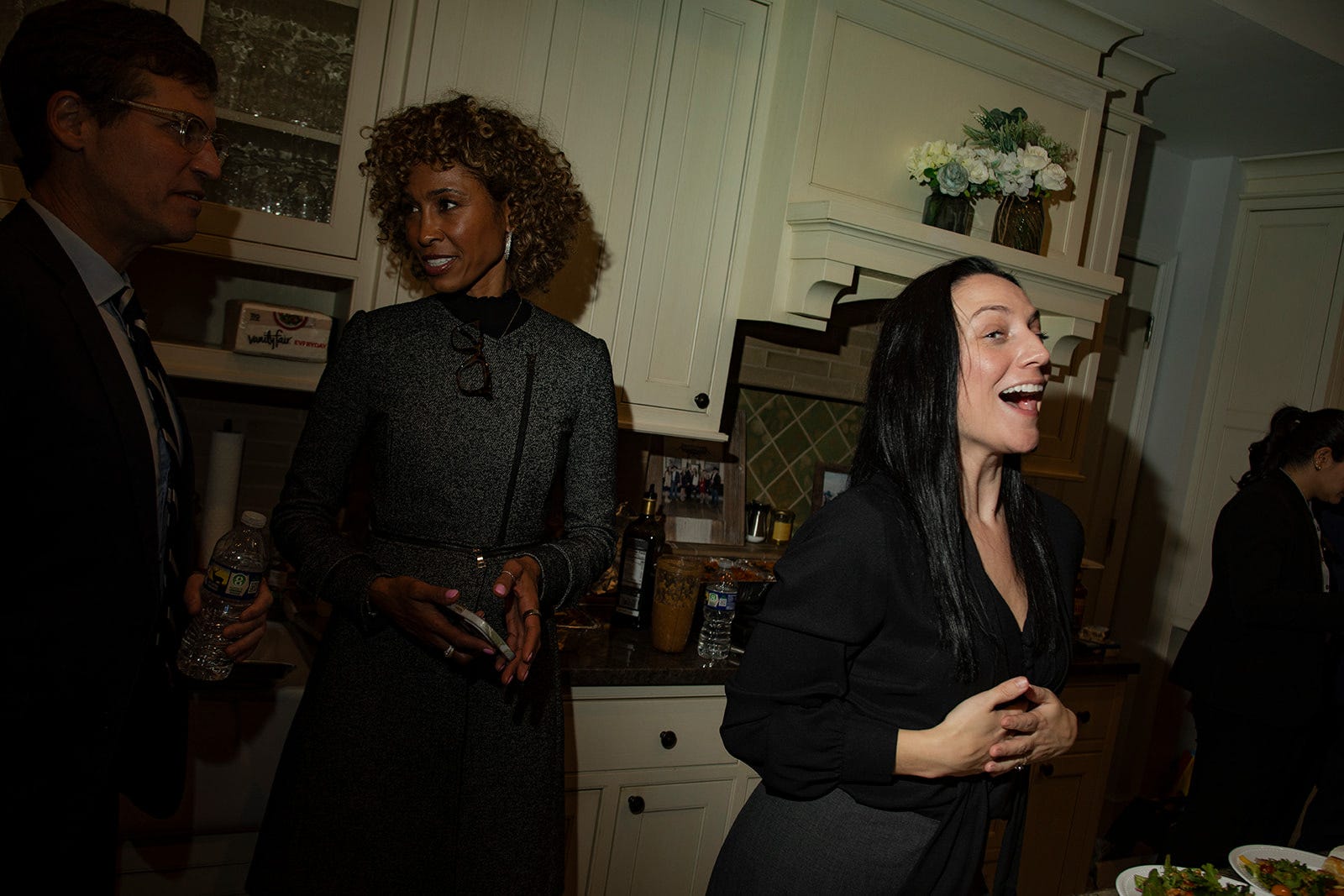

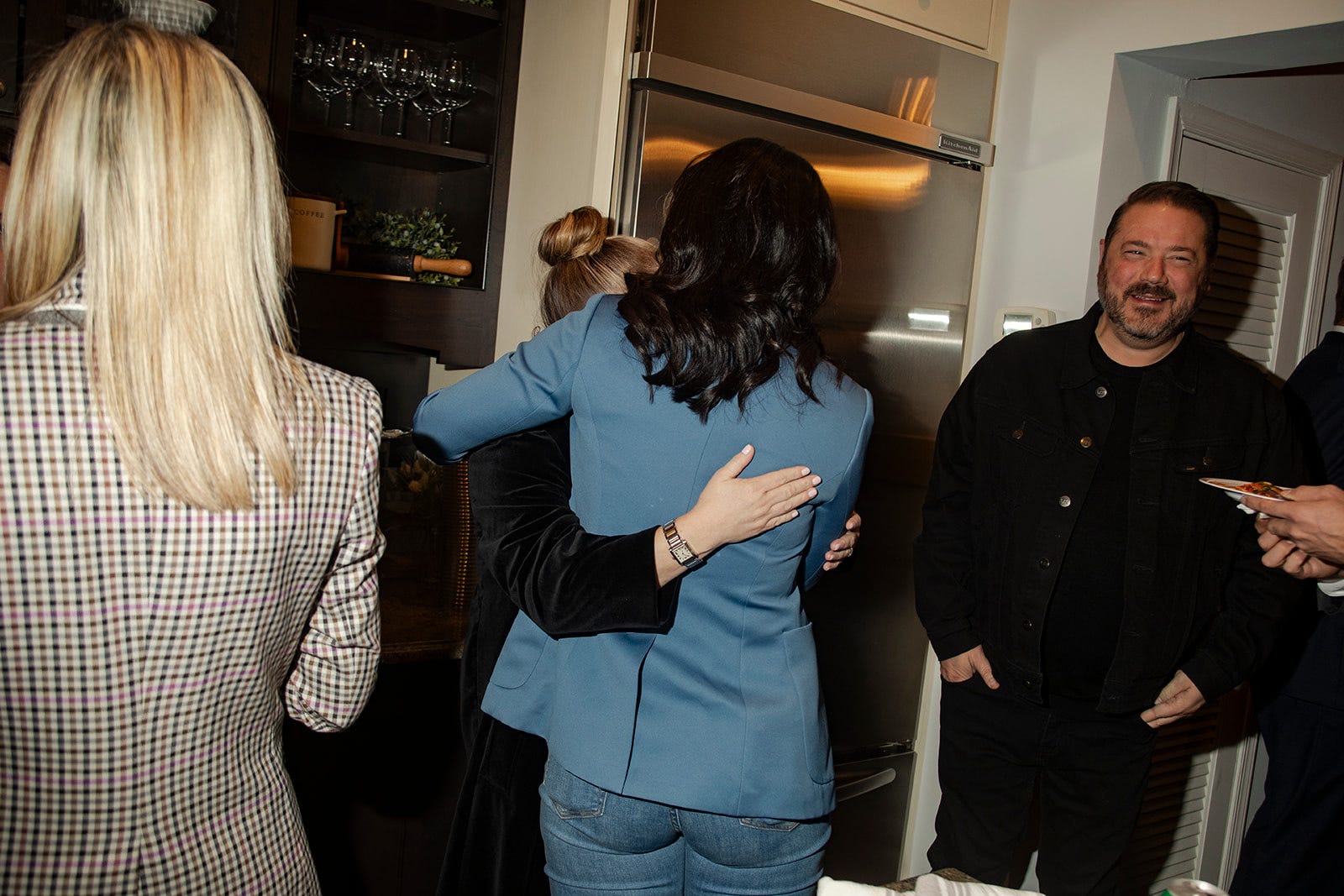
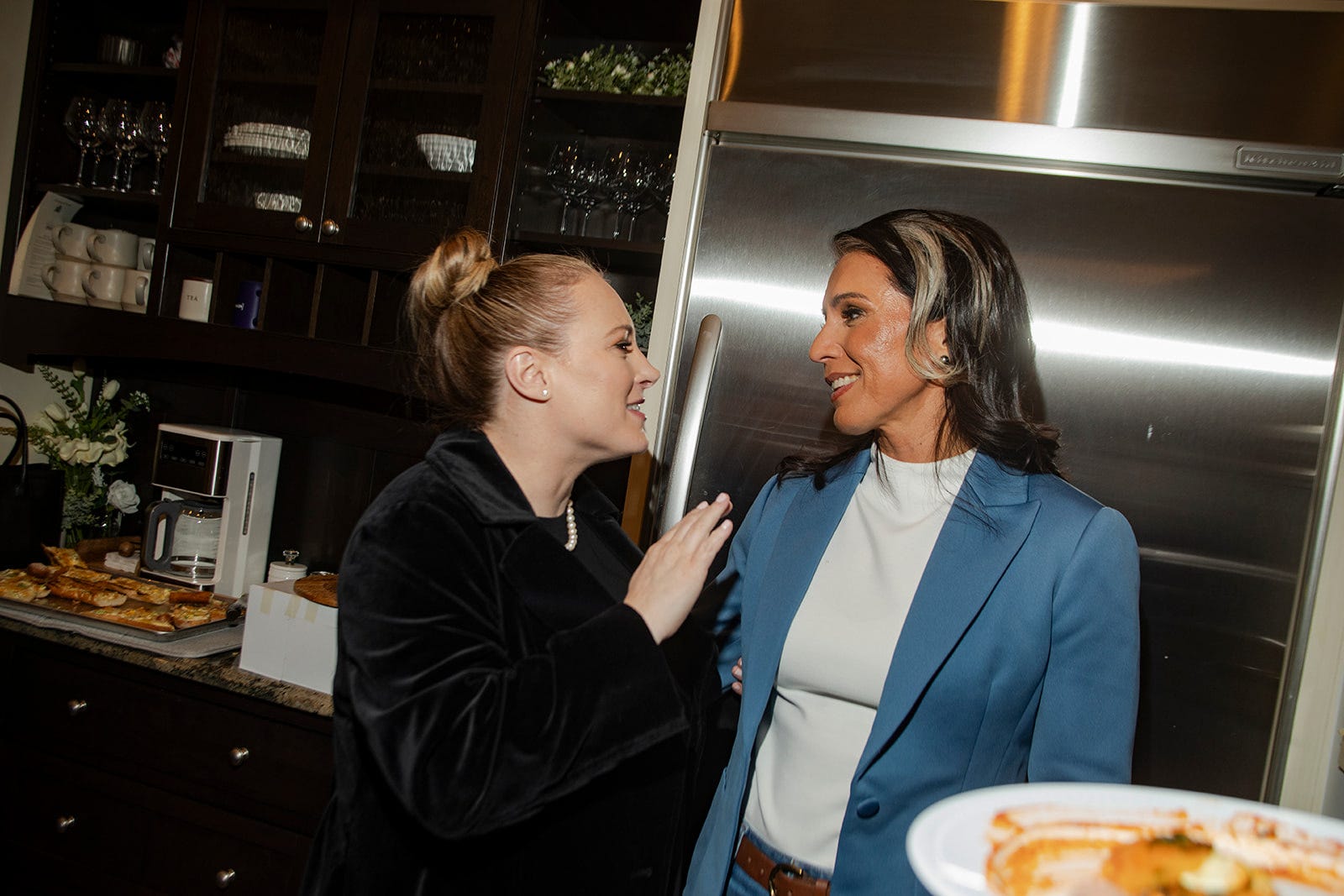
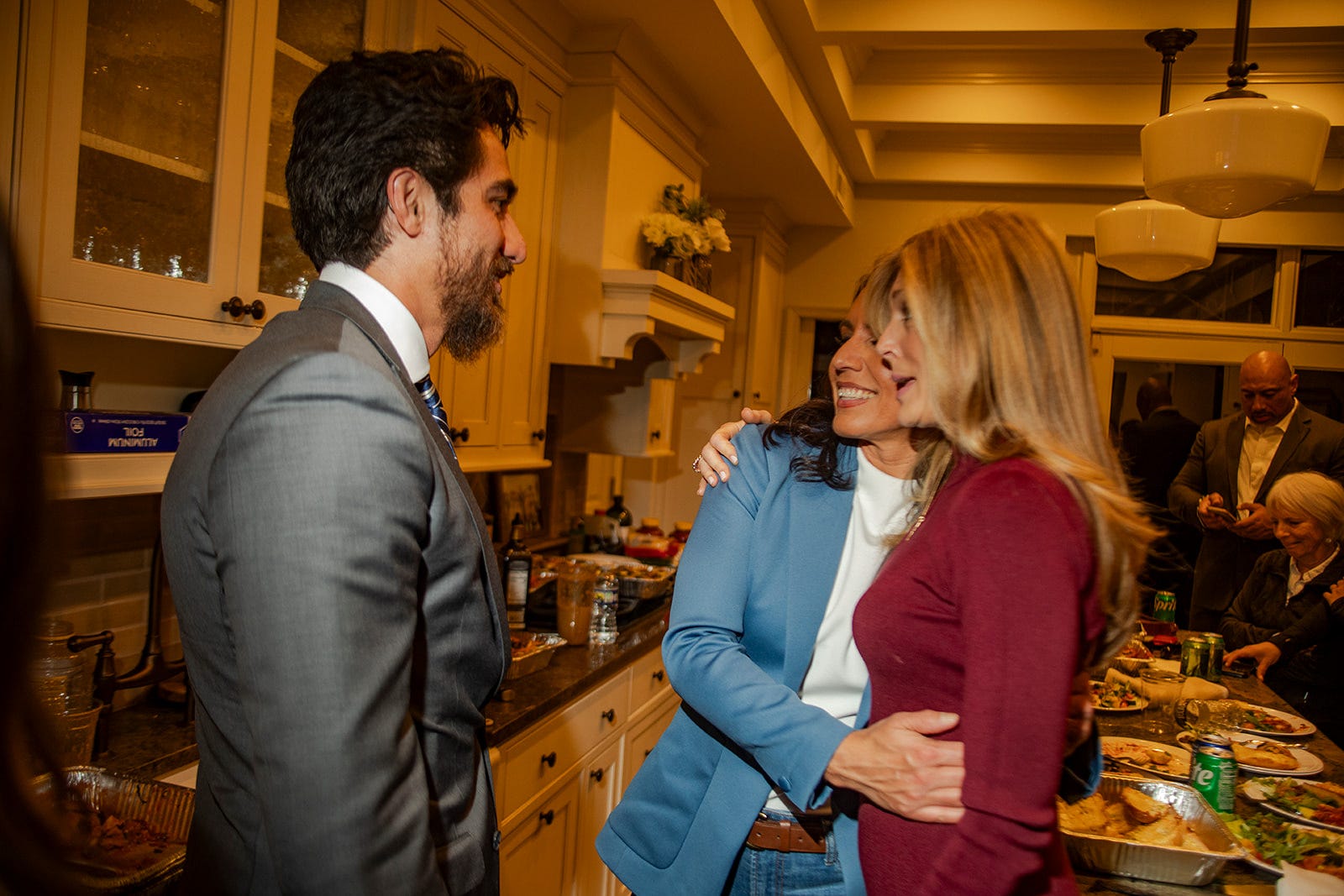

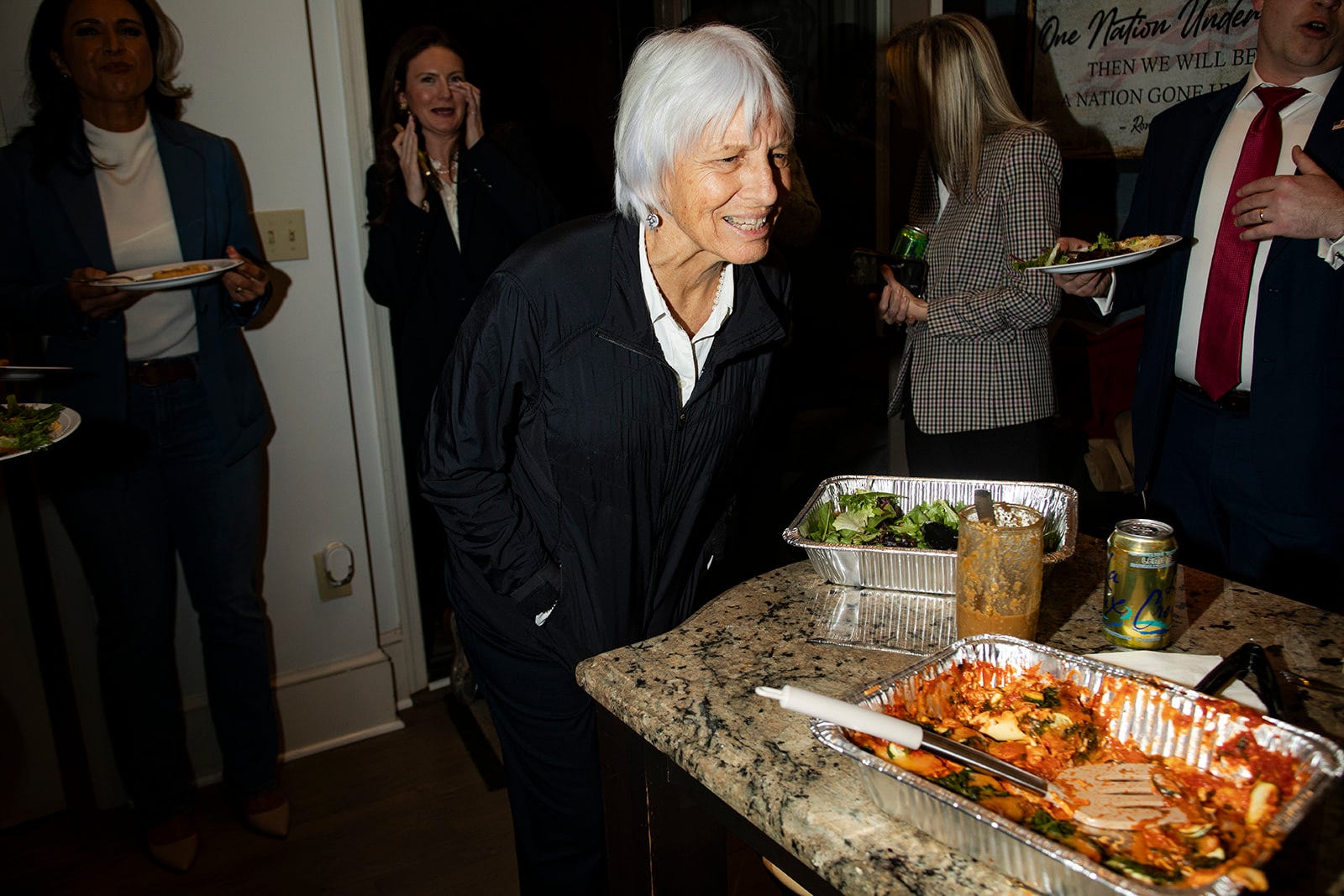
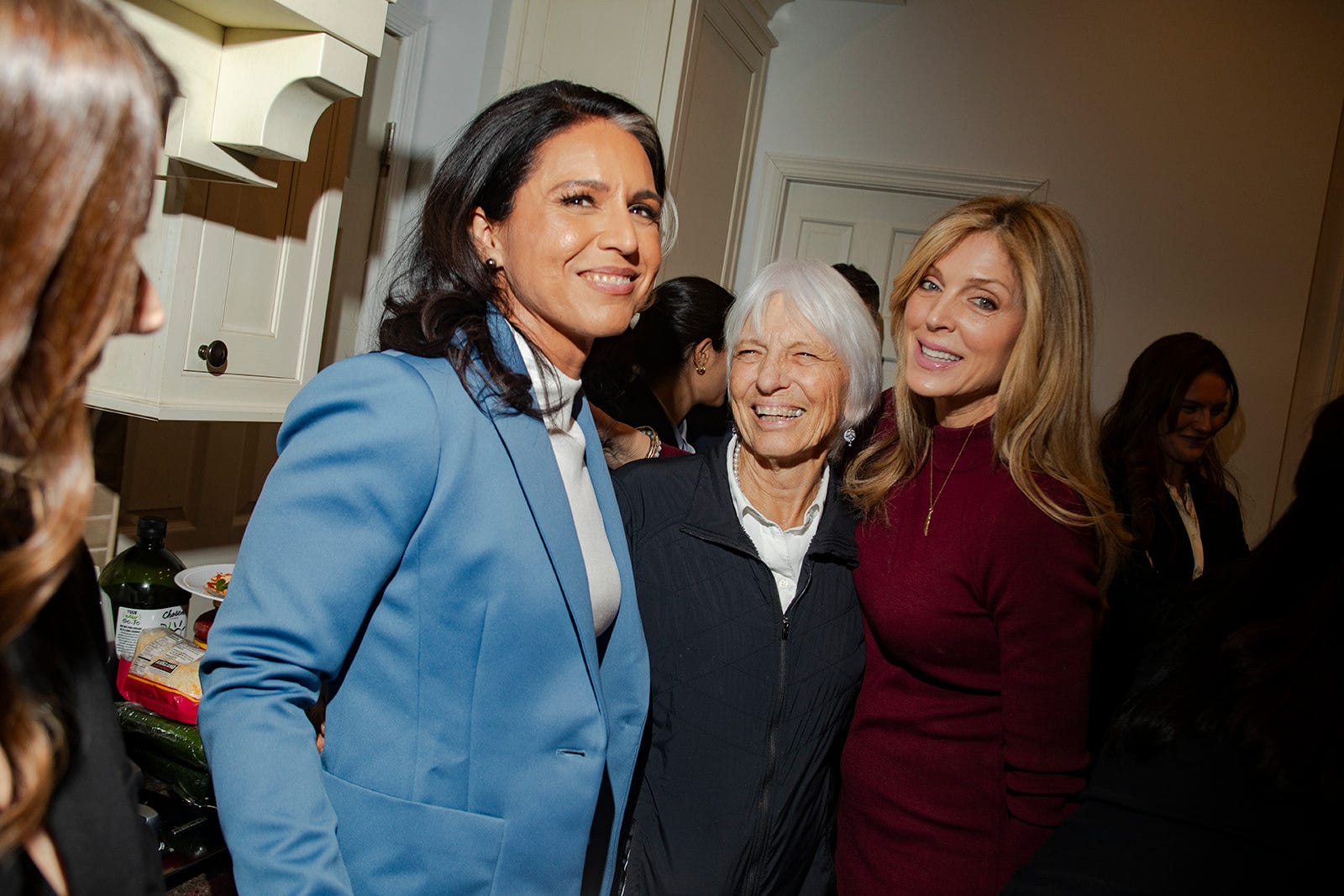
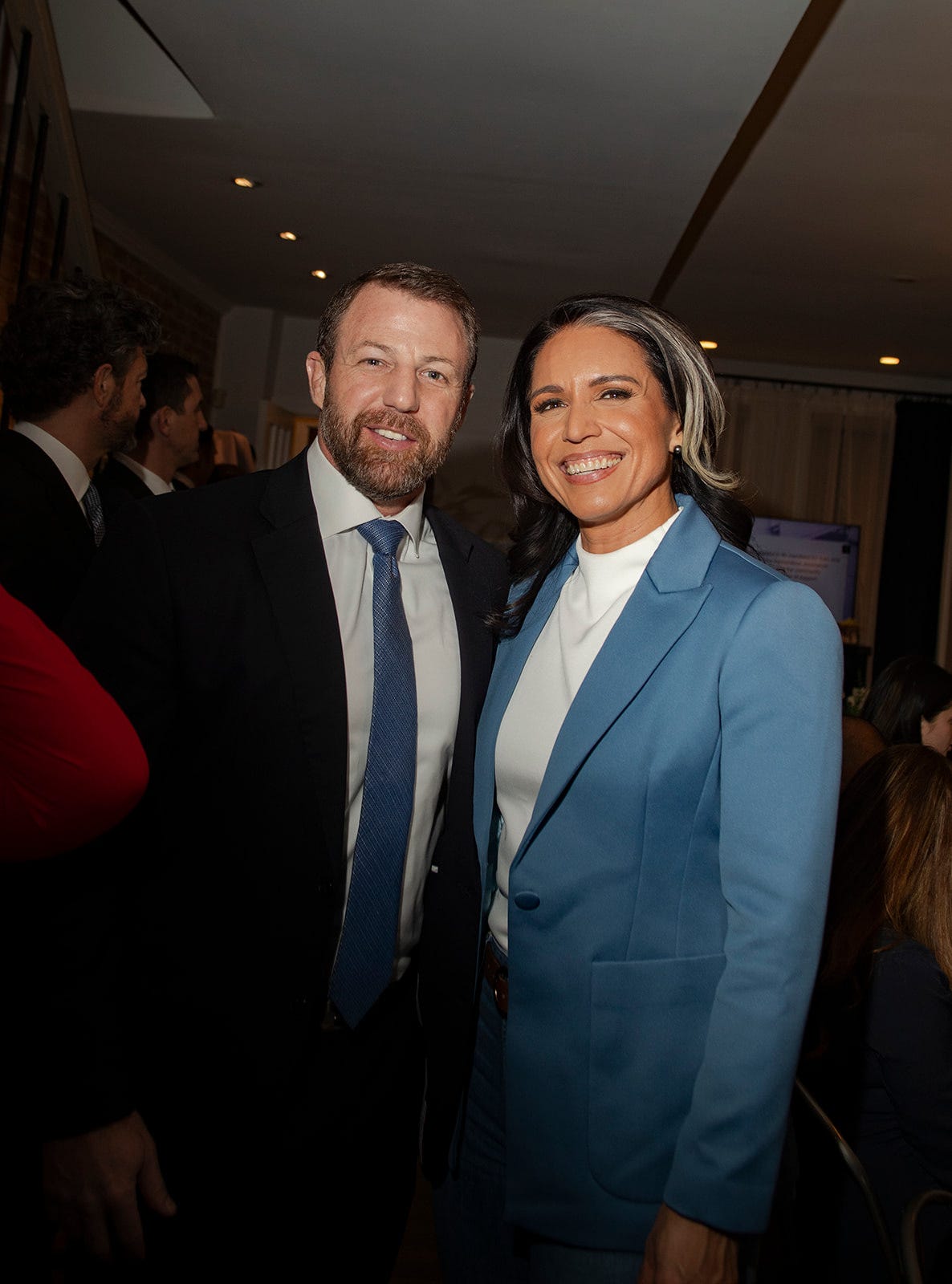
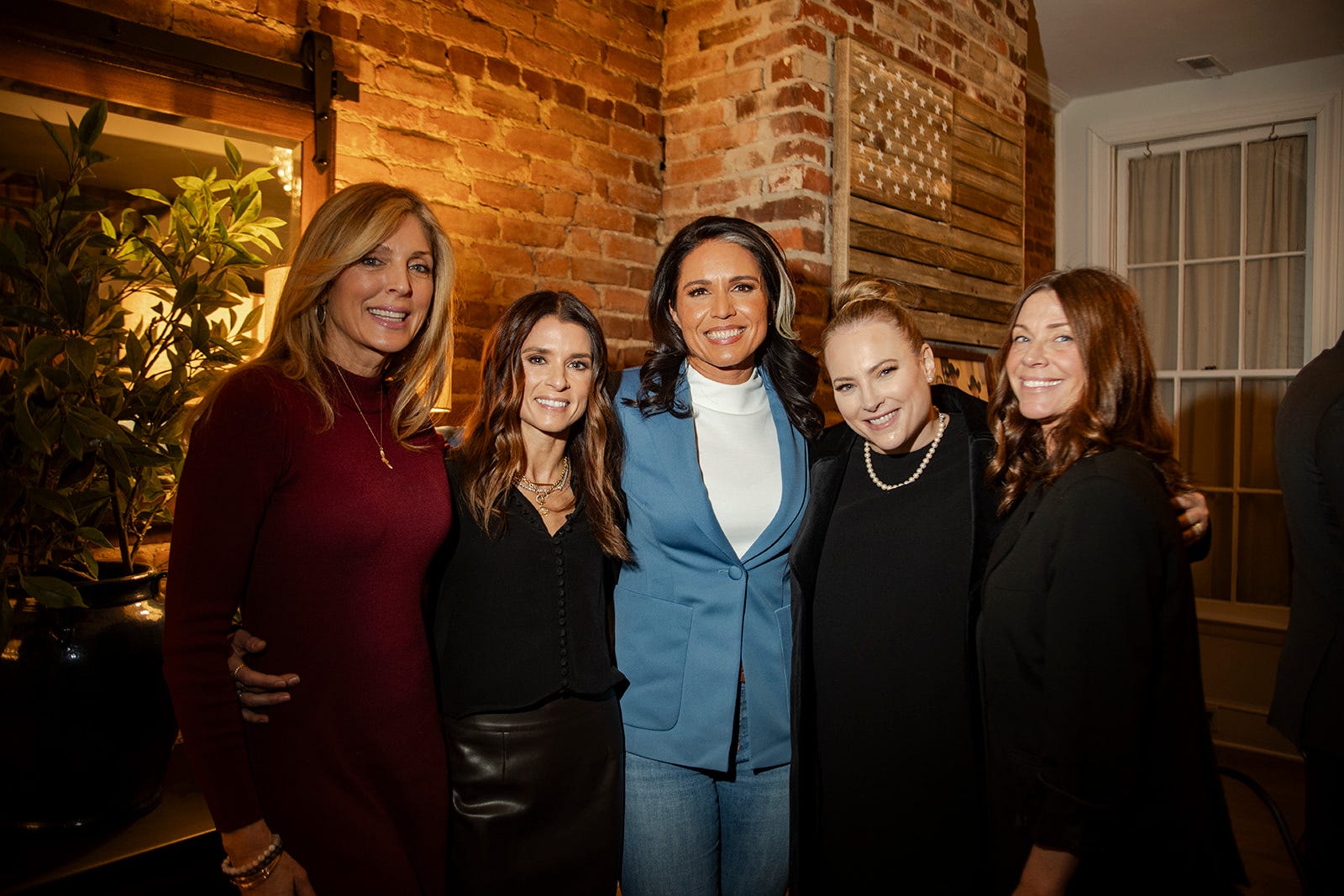


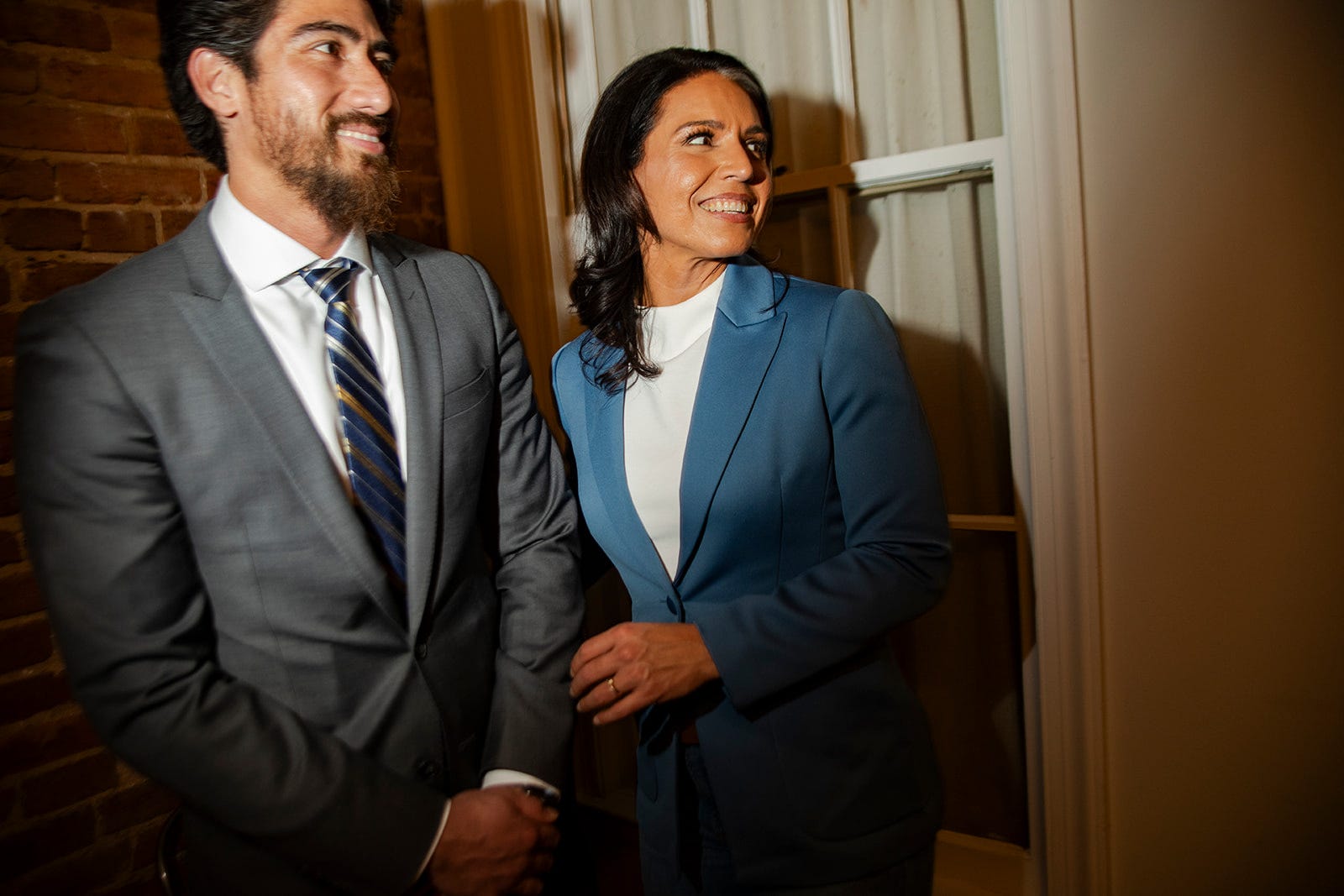
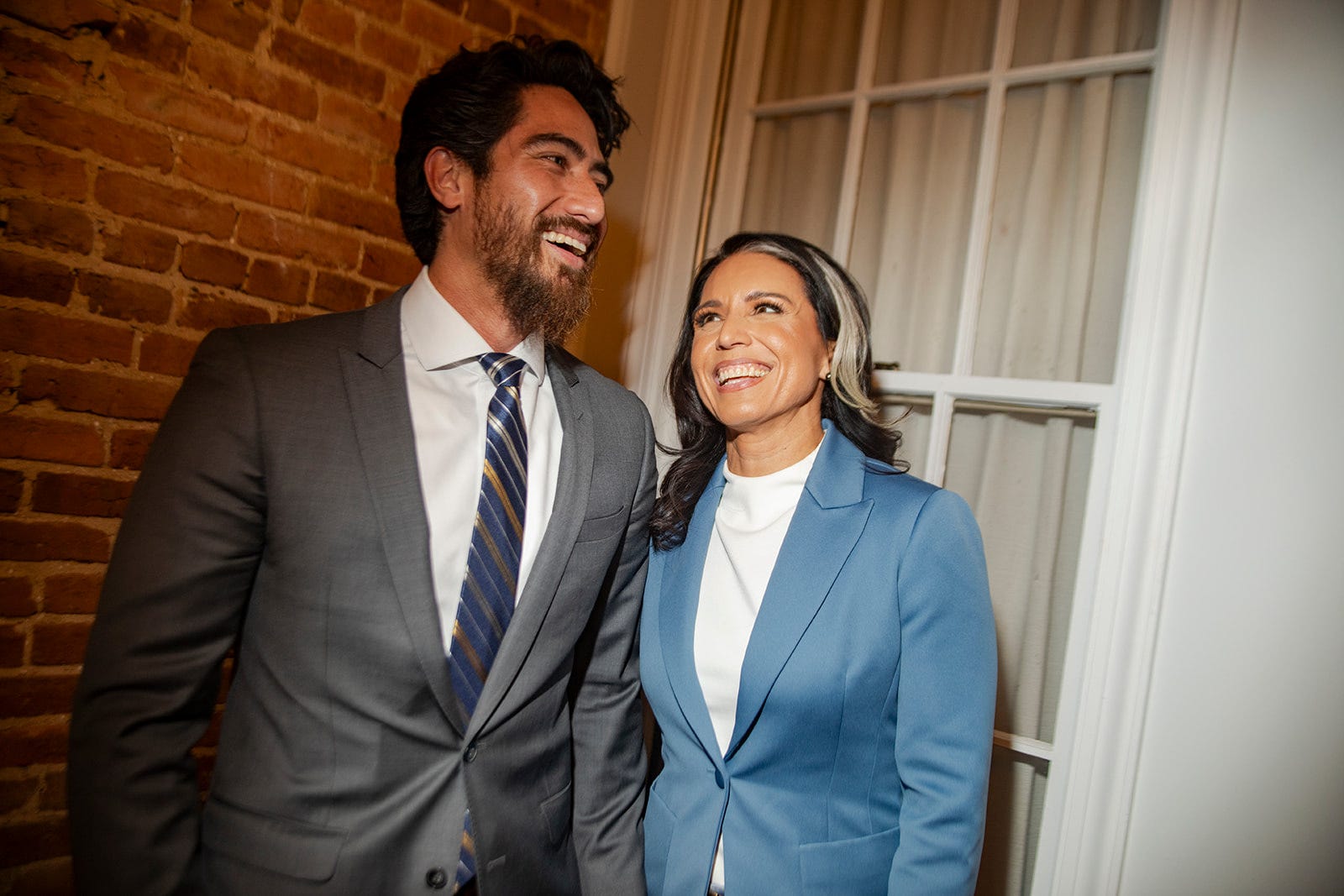
I love that you’re invited to such personal moments of theirs- I think it’s something special that they seem to not see you as “just” a journalist, but someone they genuinely like having around. I really appreciate how you don’t chase the story & seek evidence to back it, but rather investigate the lead and ride the wave wherever it takes you. It’s been a wild ride thus far and am loving where you take us fans!
Congrats to Tulsi and team. RFK and Kash next. Not tired of winning!